(epistemic status: experimental new format! Optimized for memetic power. Fun and useful refactorings of classic ideas about language.)
(note: this post was originally made as a slide deck and lives as a pdf here. Color coding of ideas was inspired by abramdemski and turntroat. Since this is a bunch of images, the links don't work, and I've collected them all at the bottom of the post)
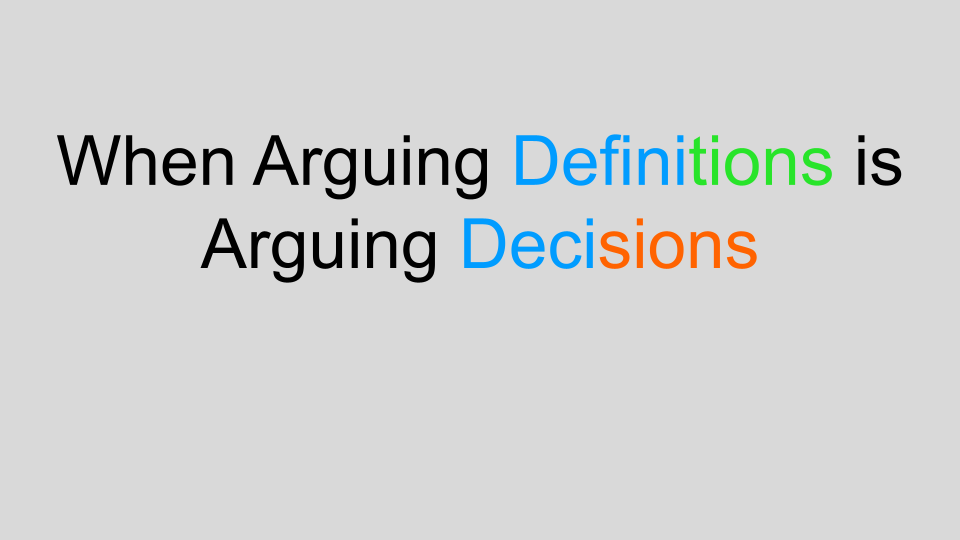
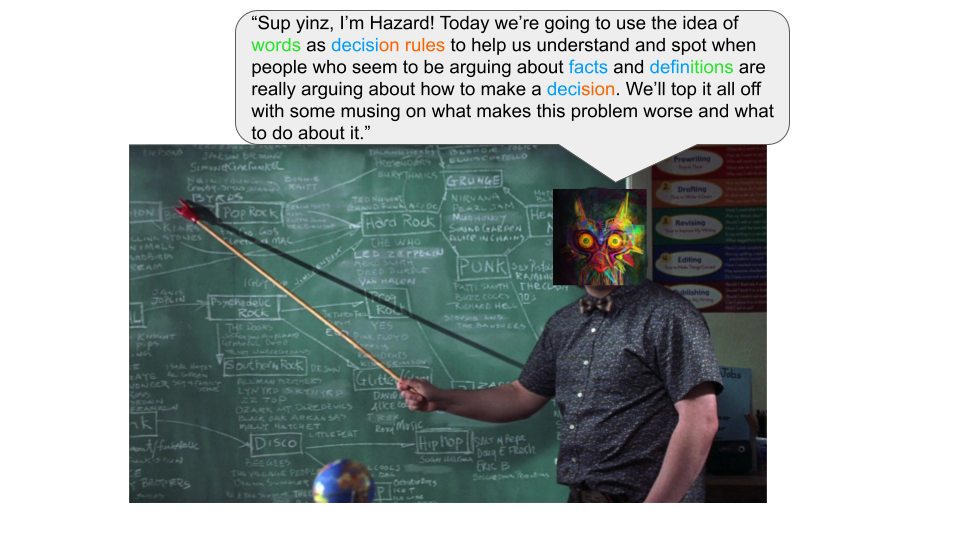
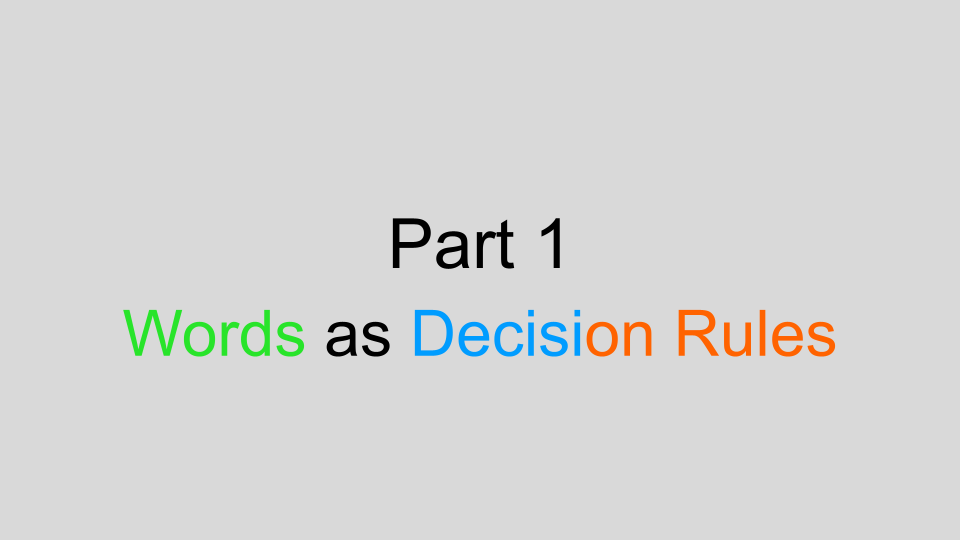
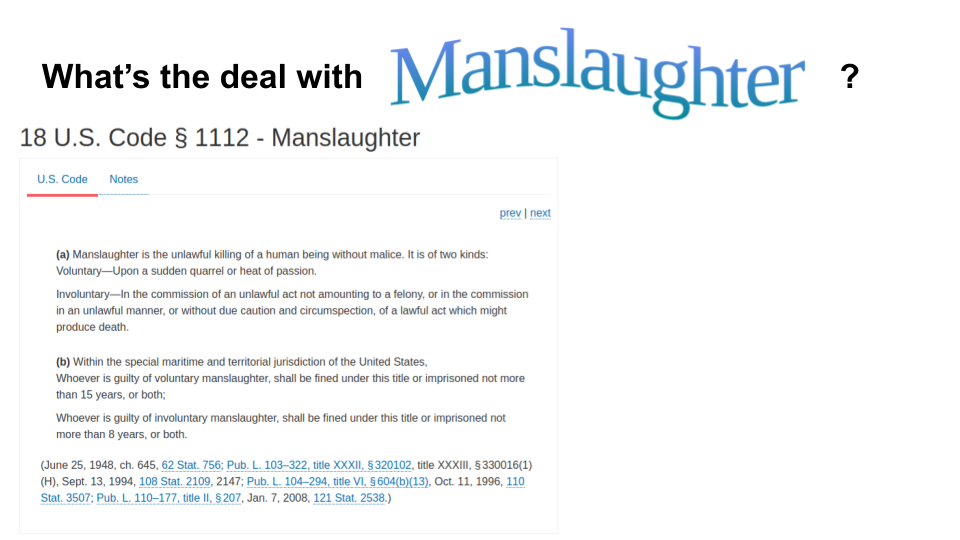
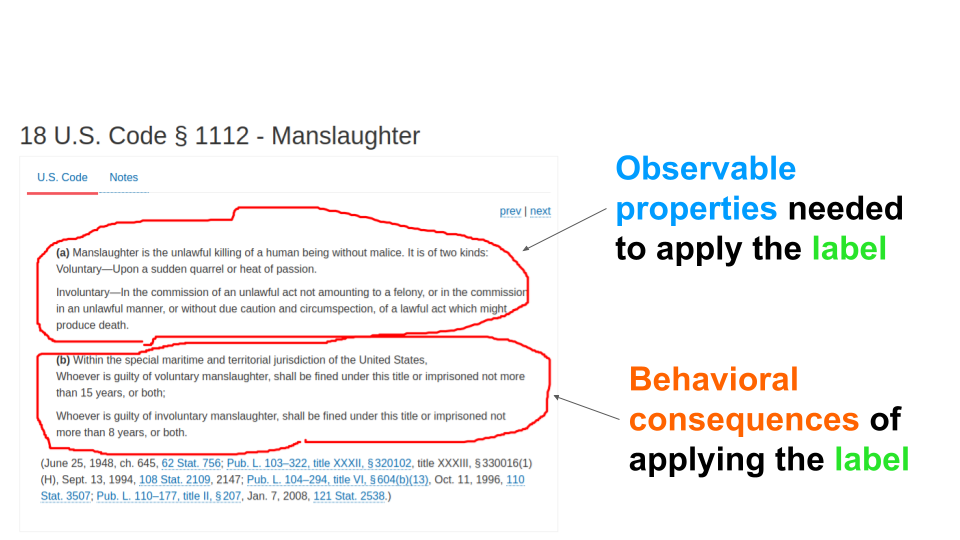
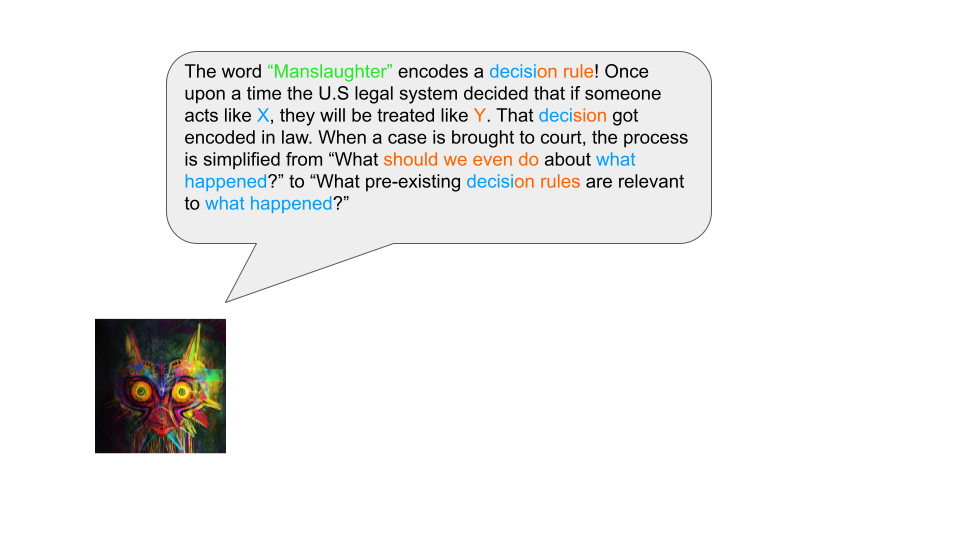
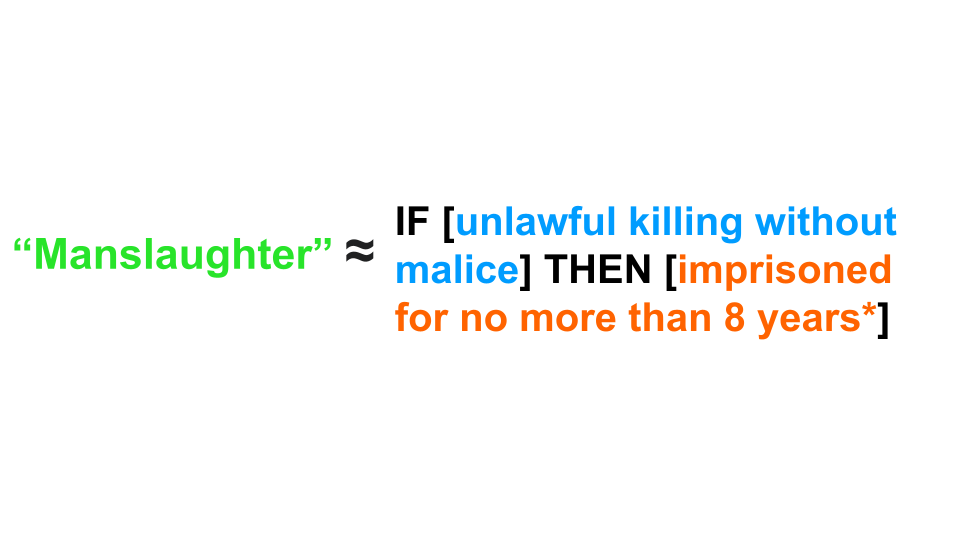
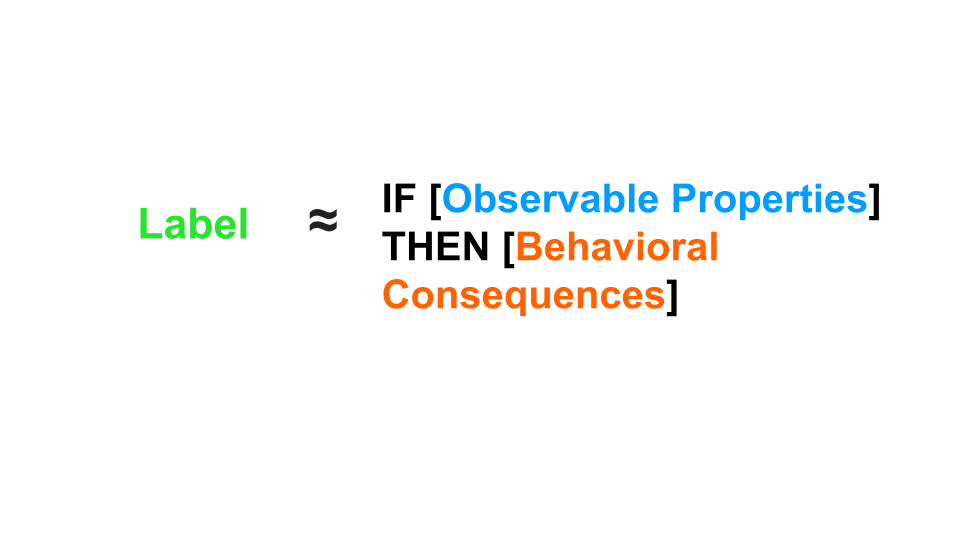
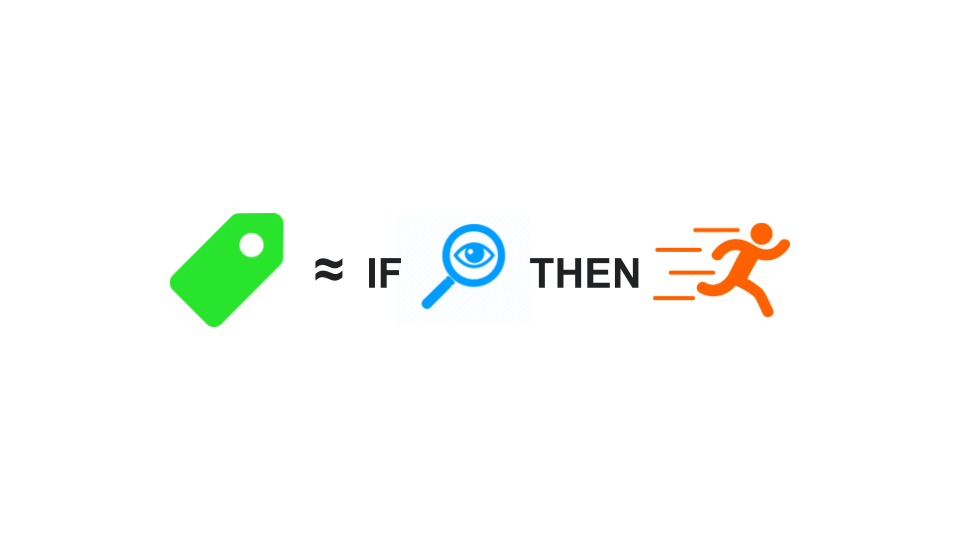
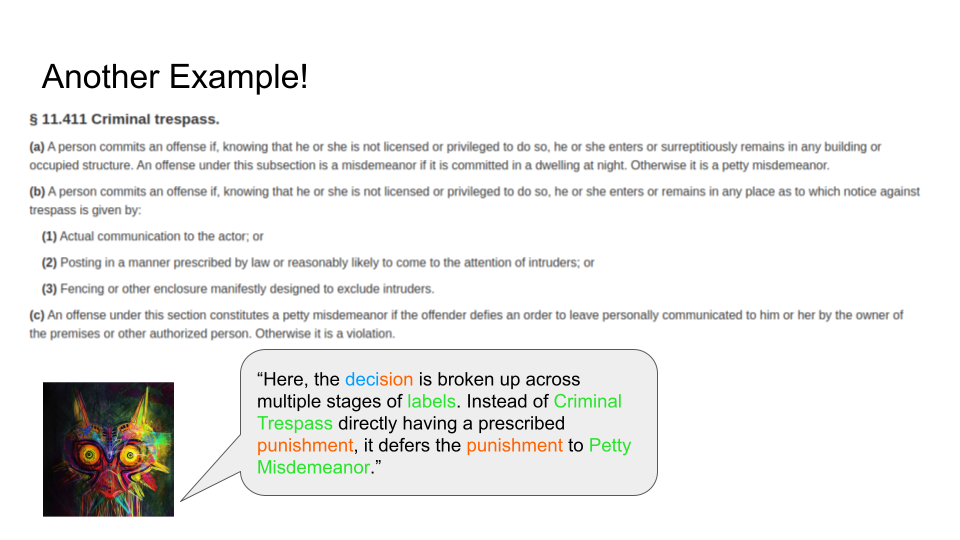
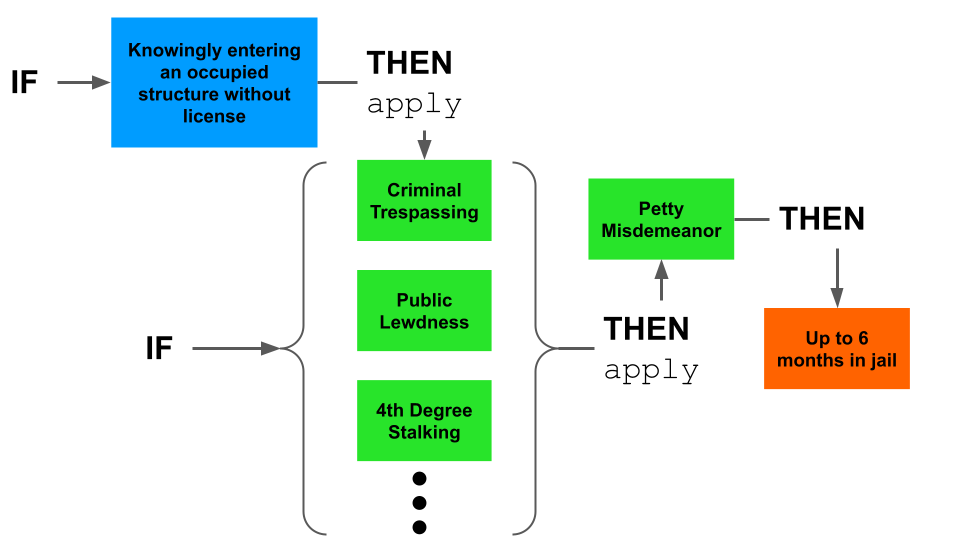
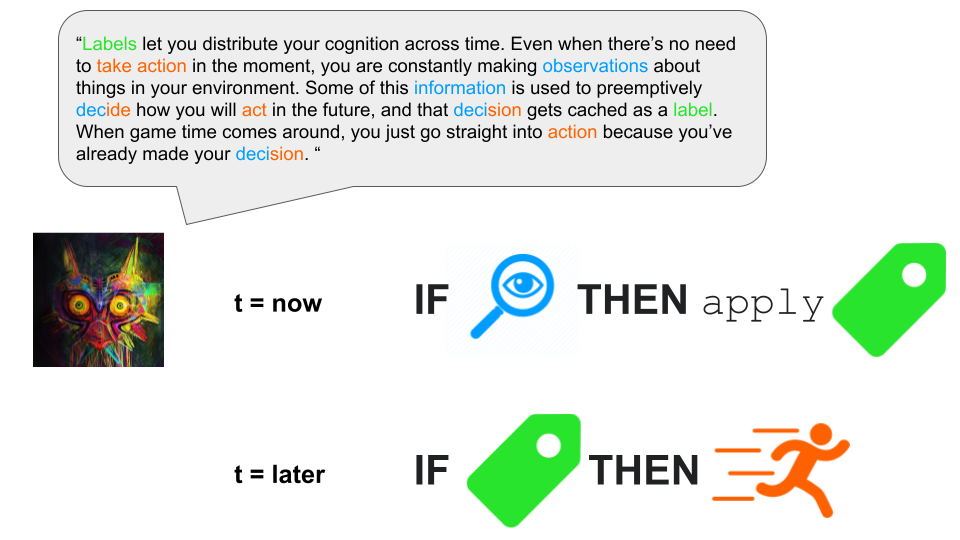
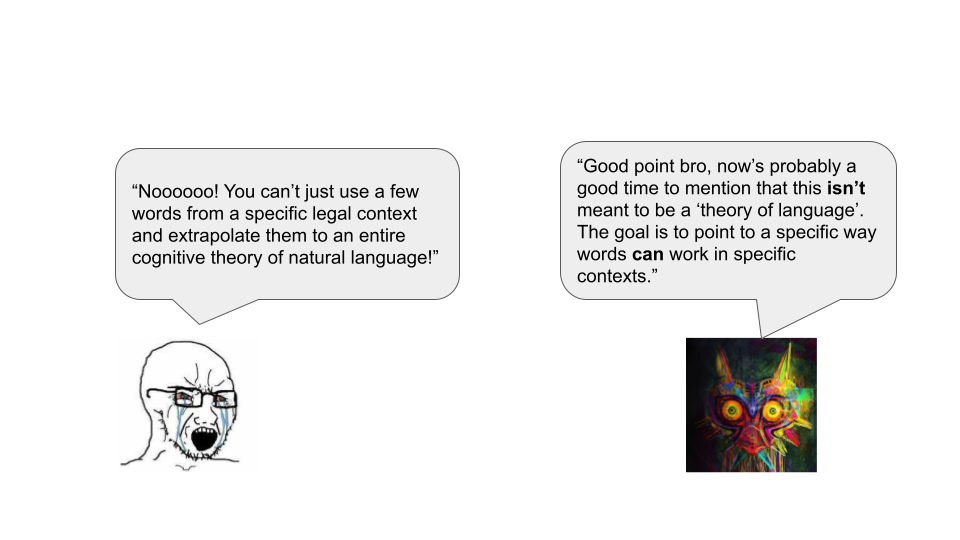
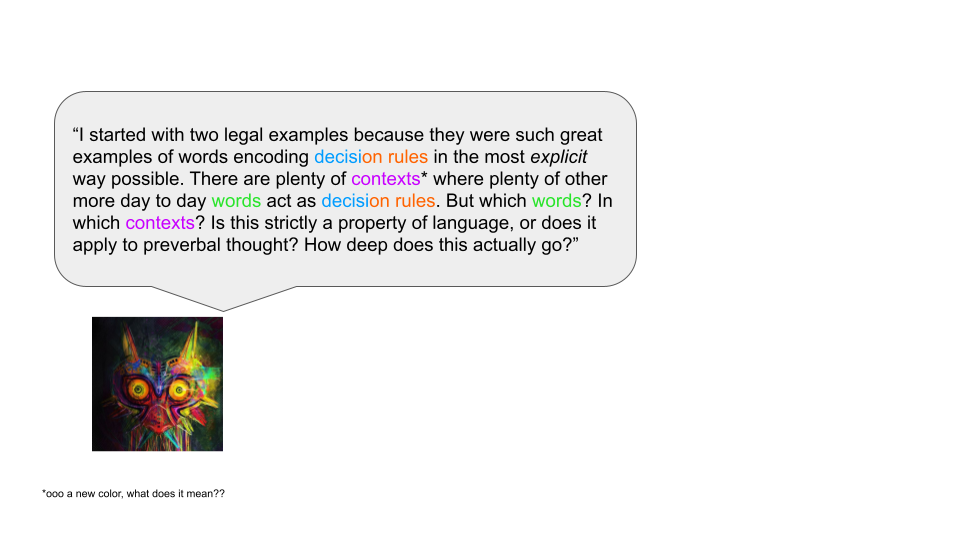
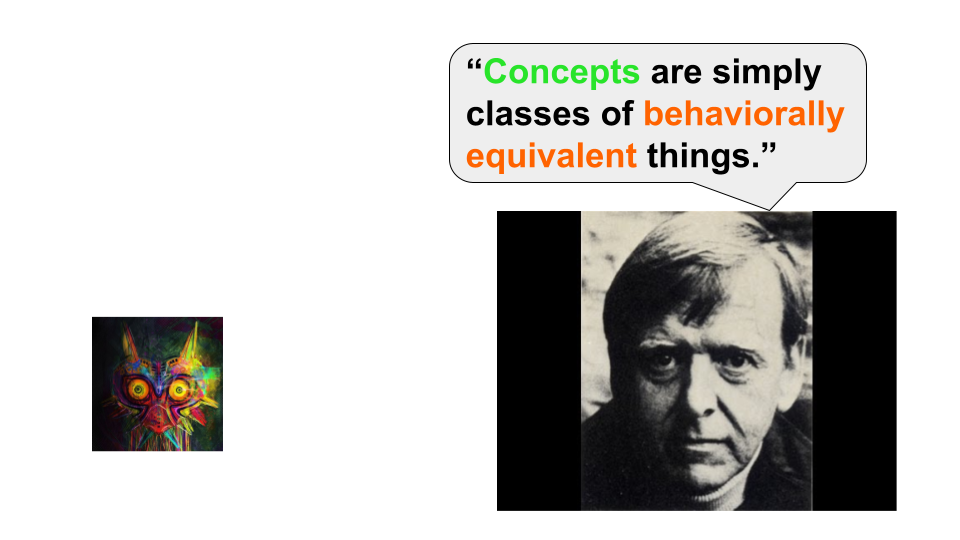
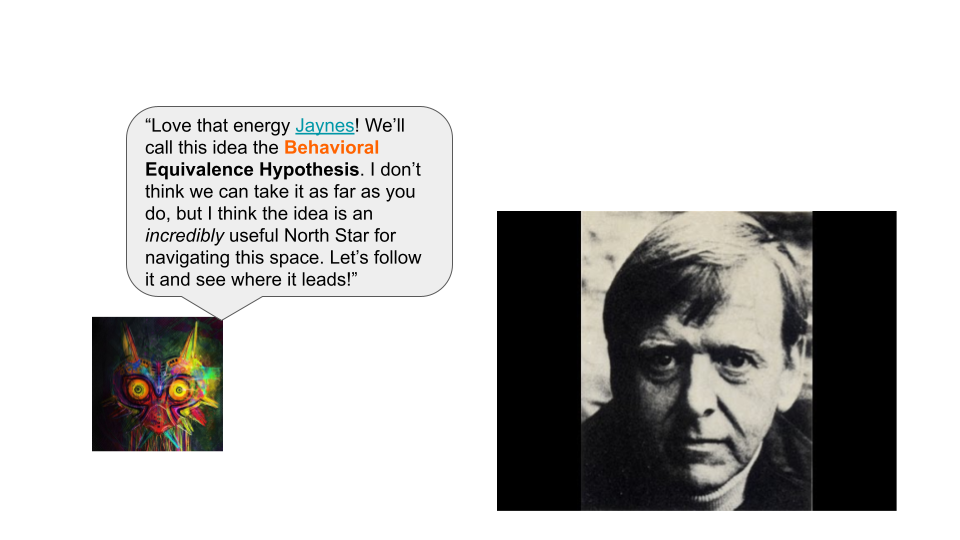
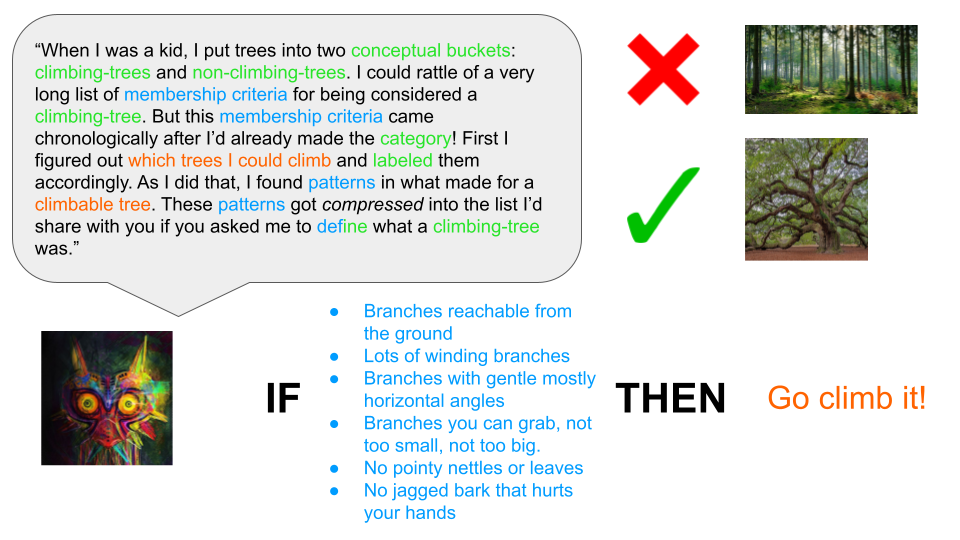
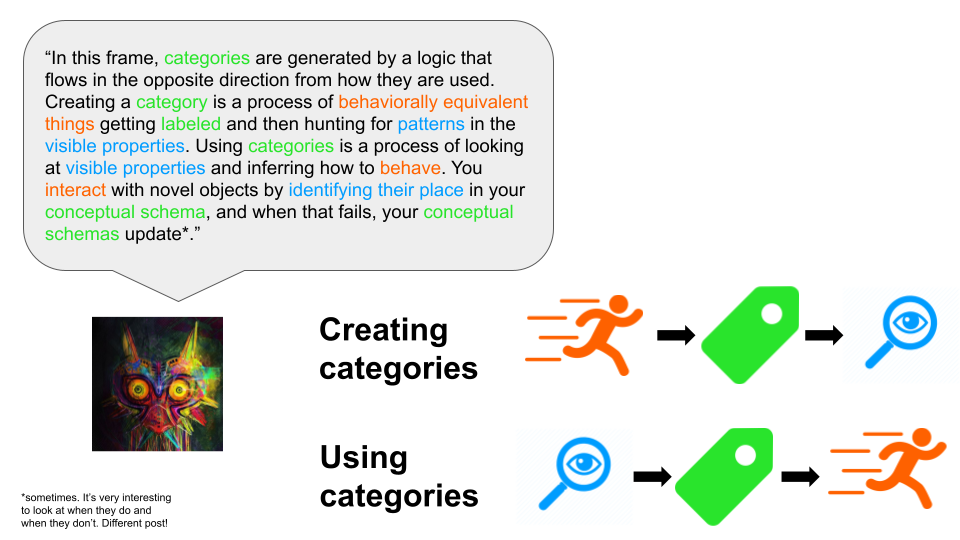
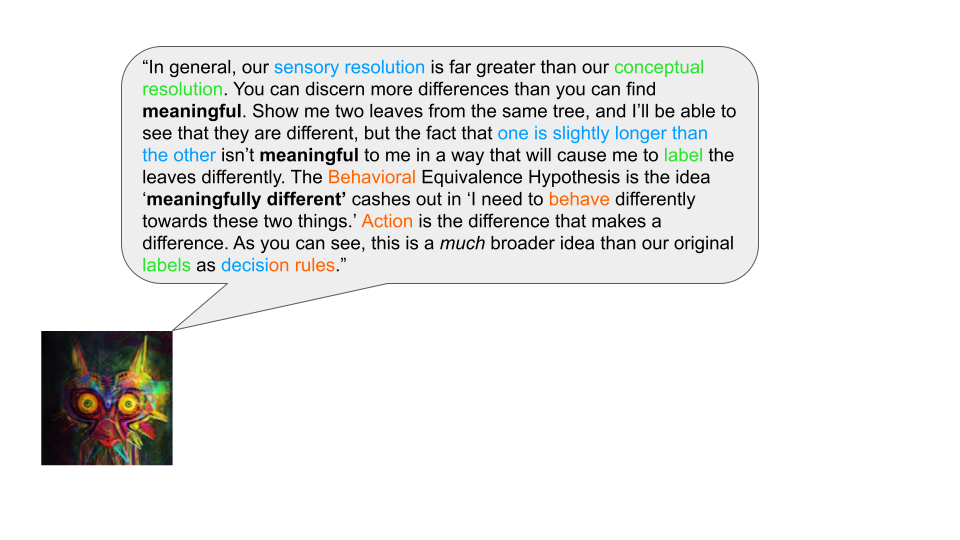
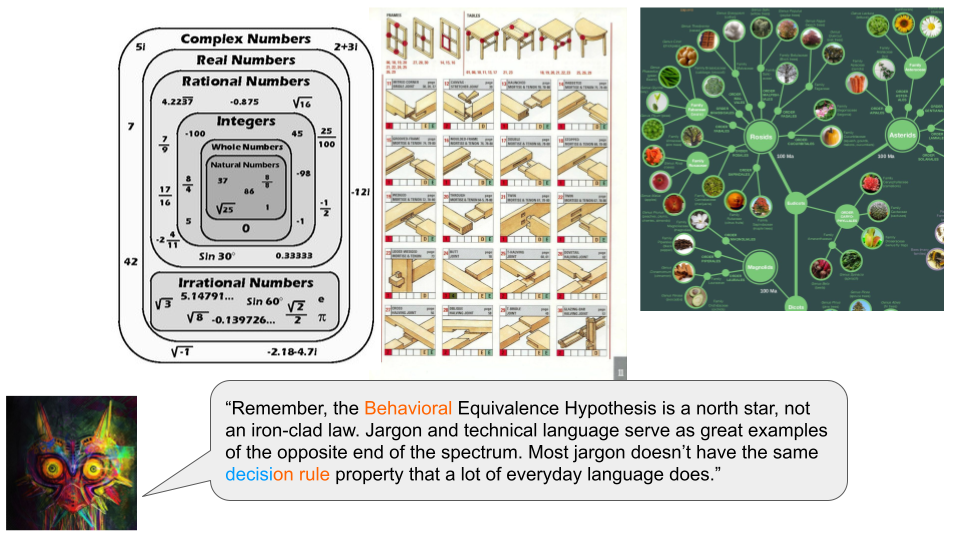
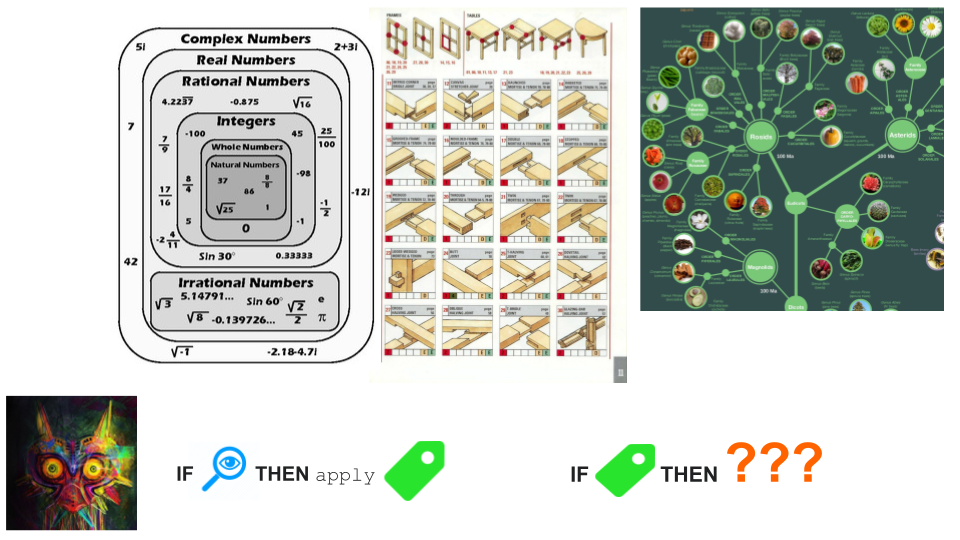
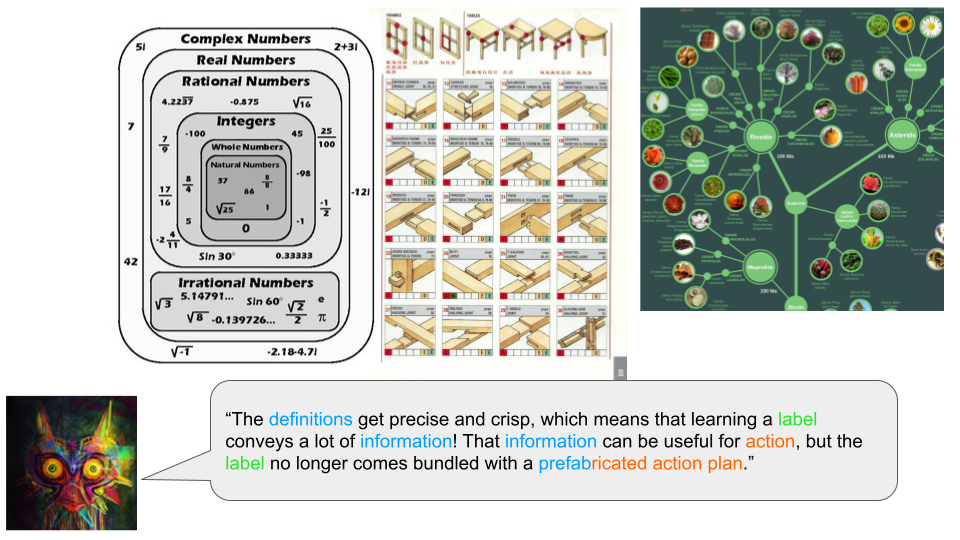
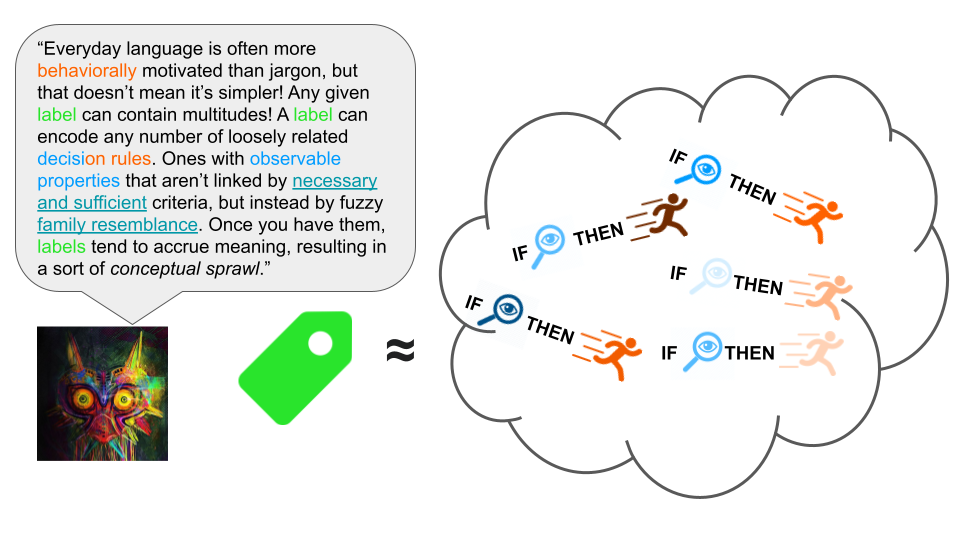
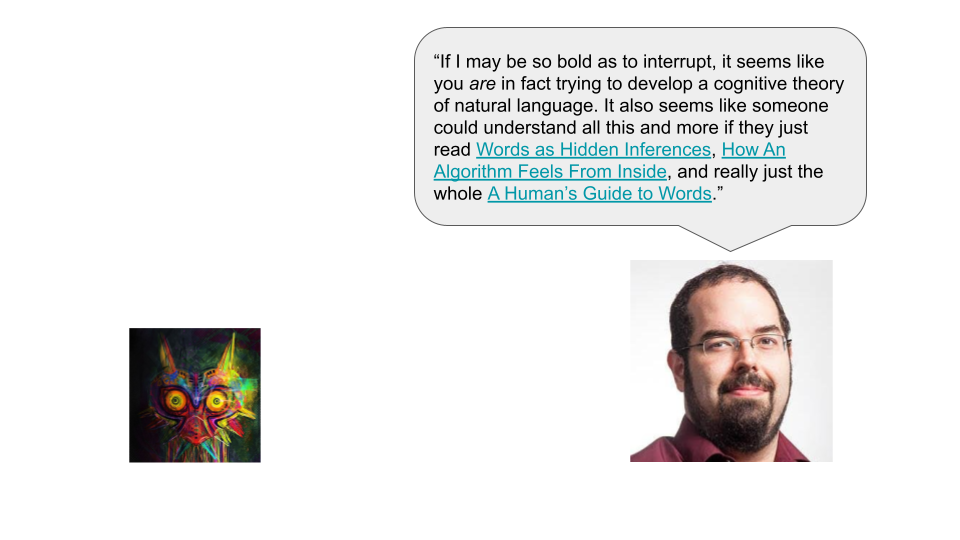
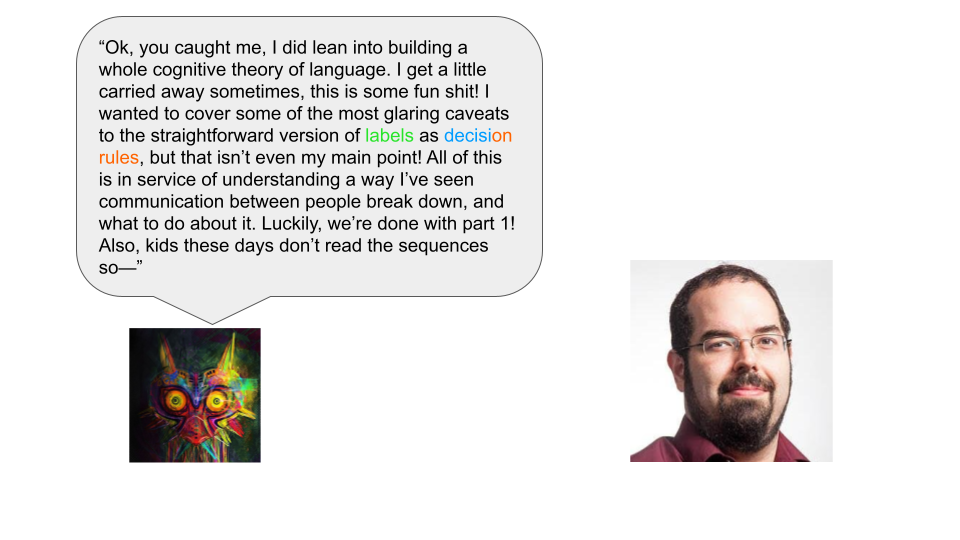
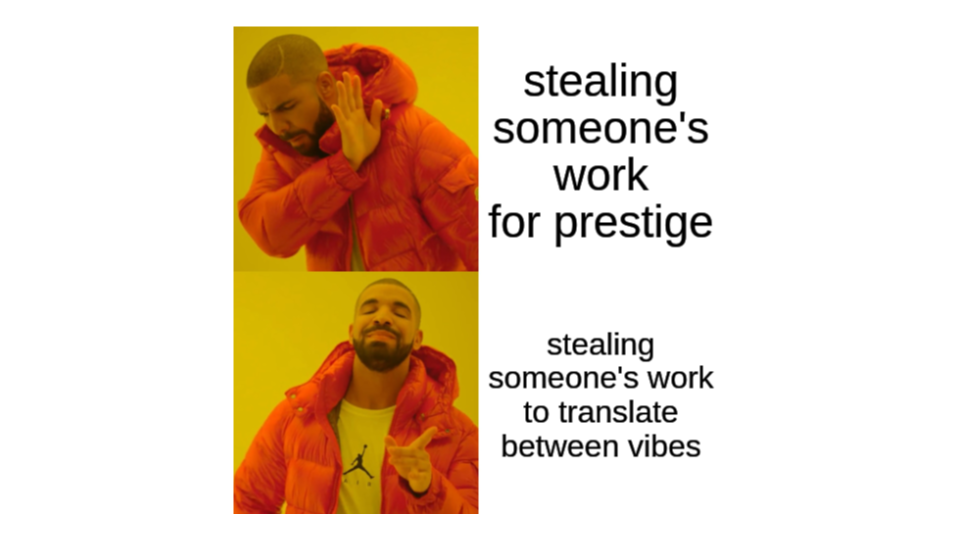
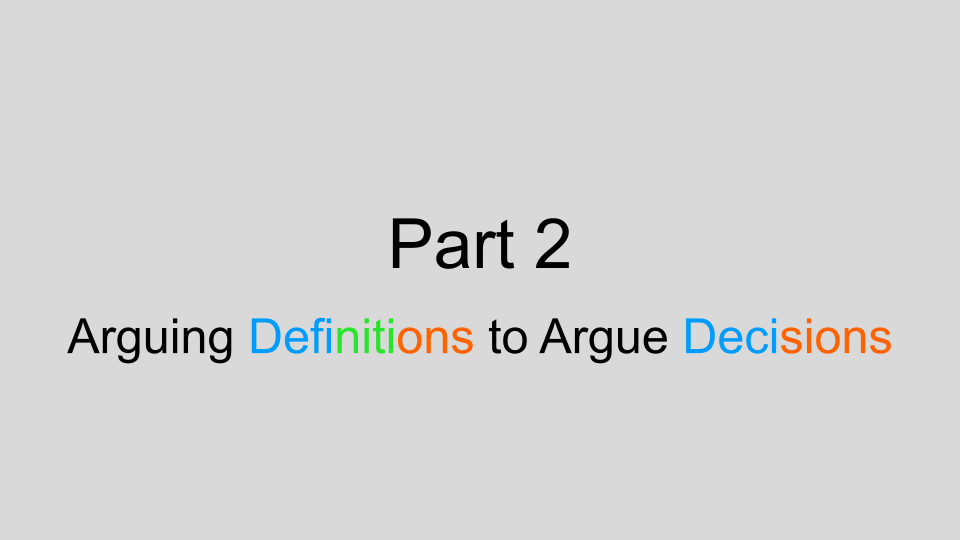
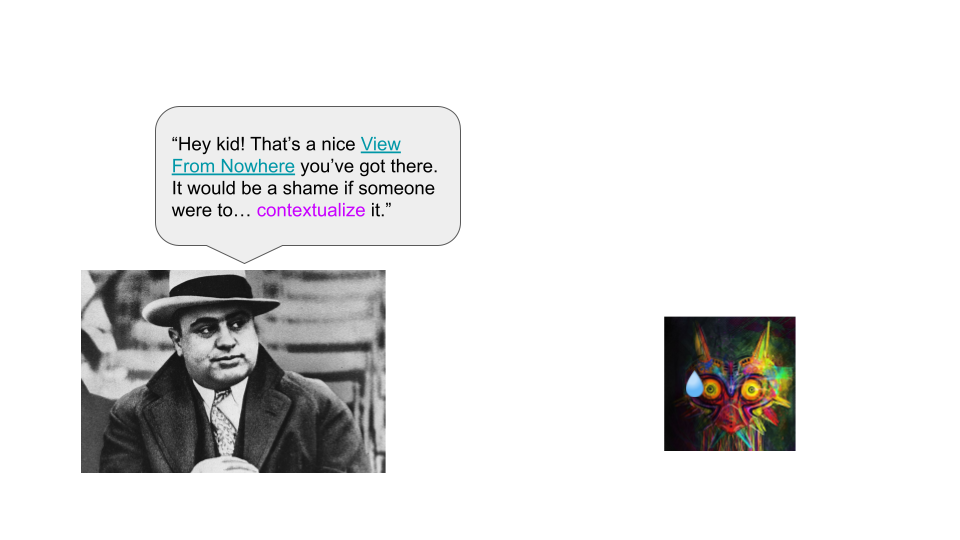
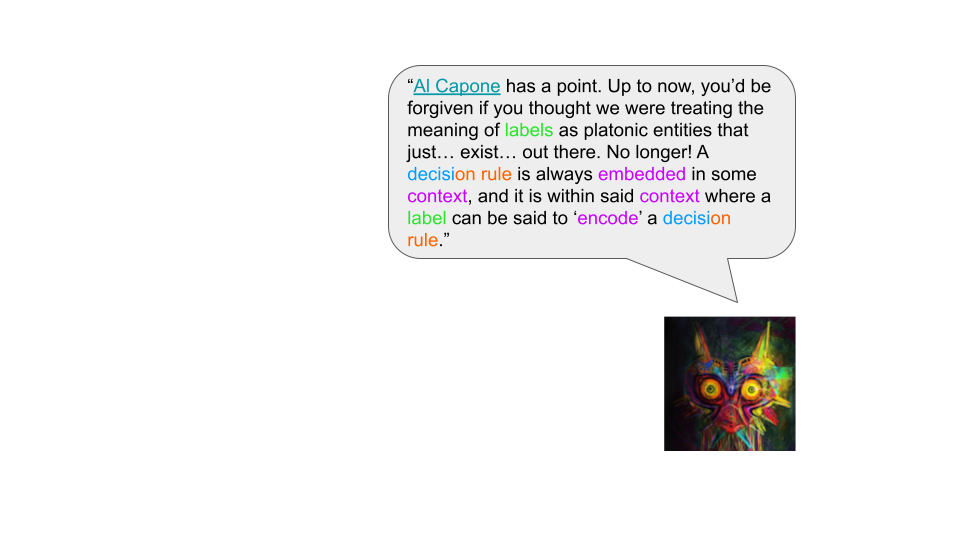
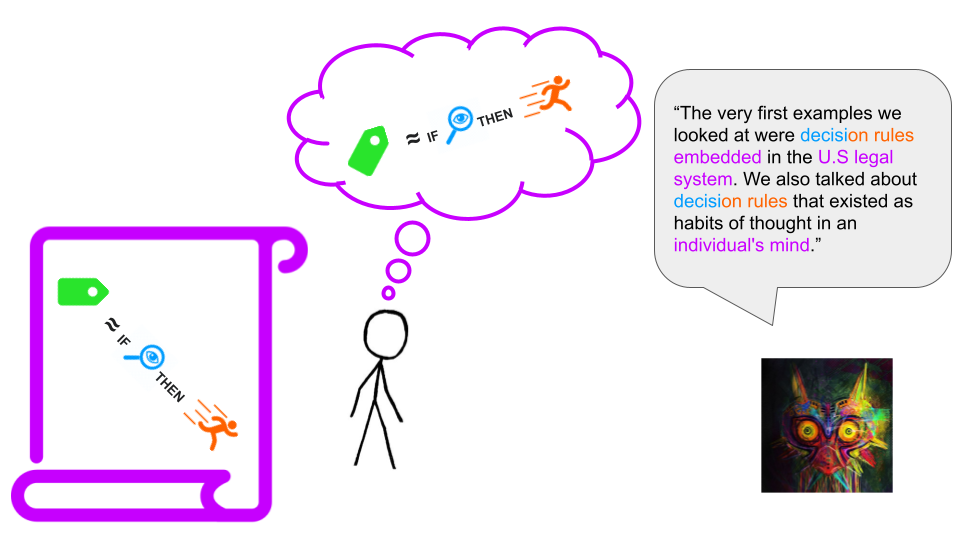
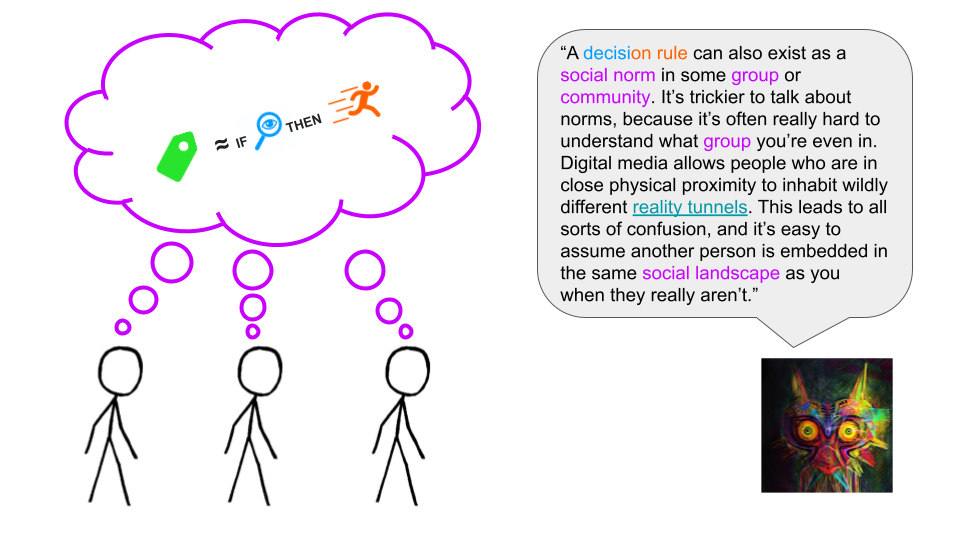
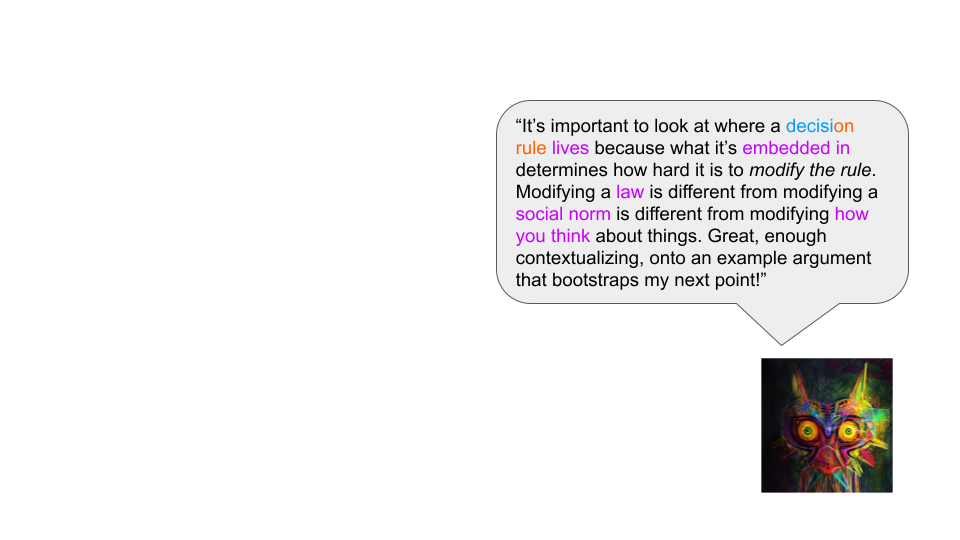
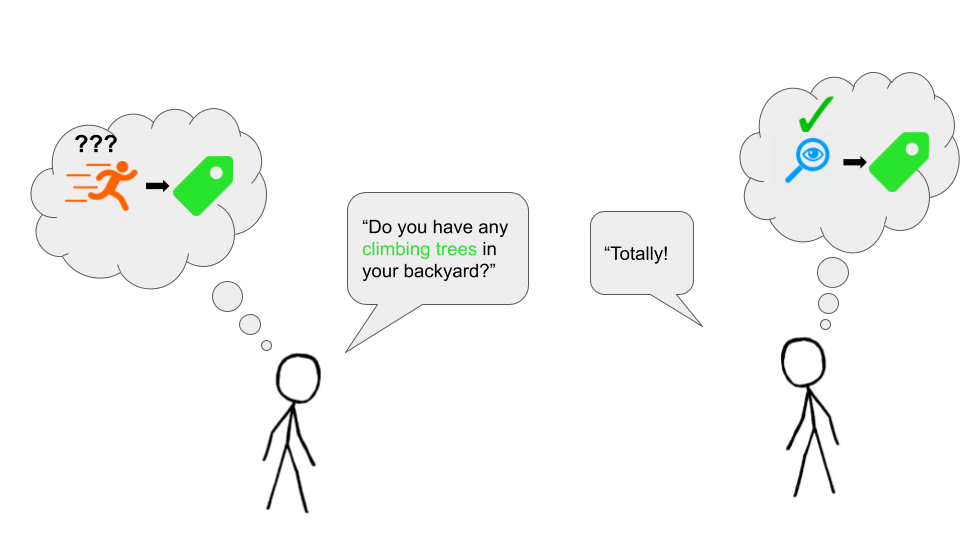
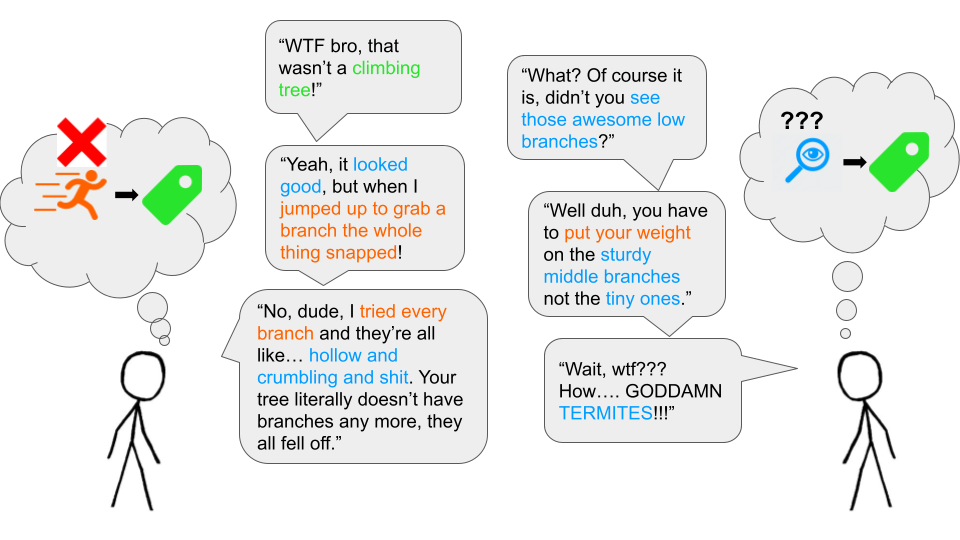
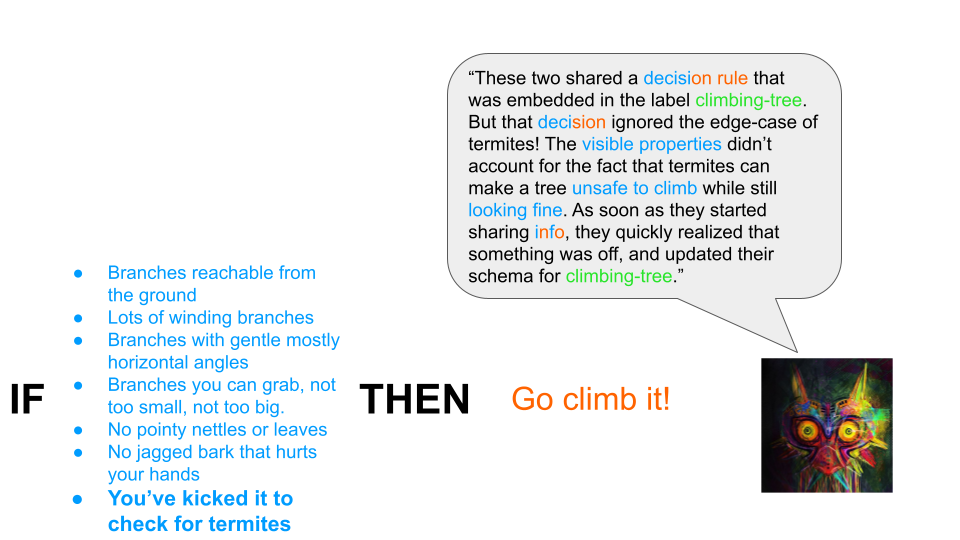
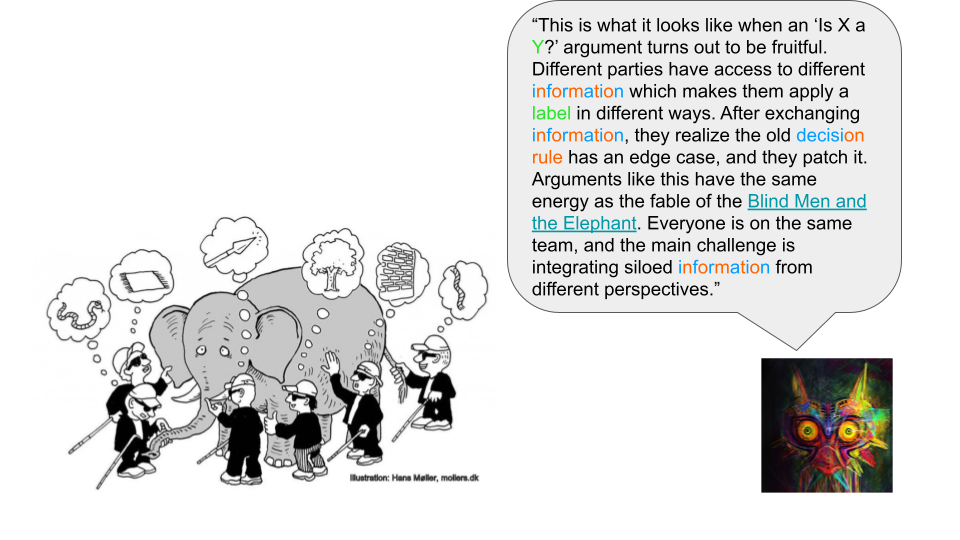
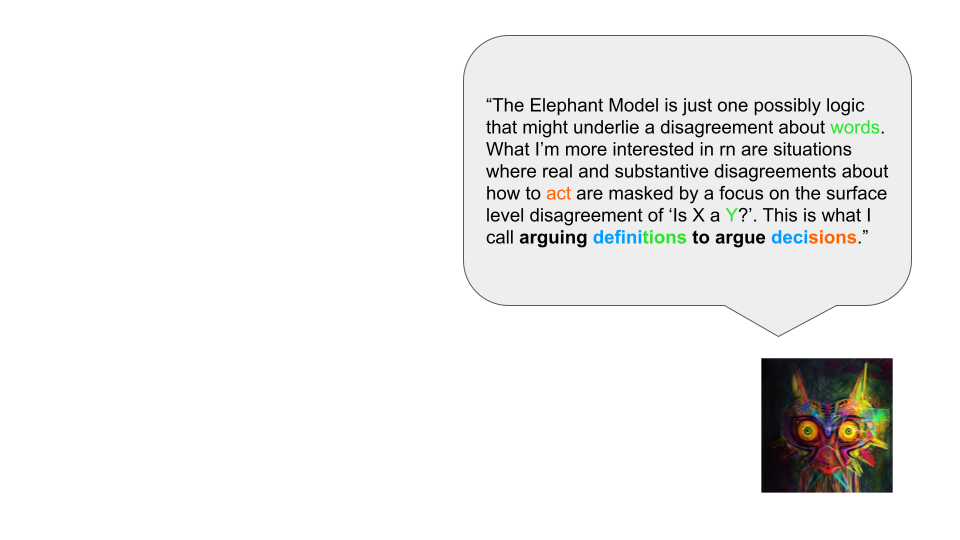
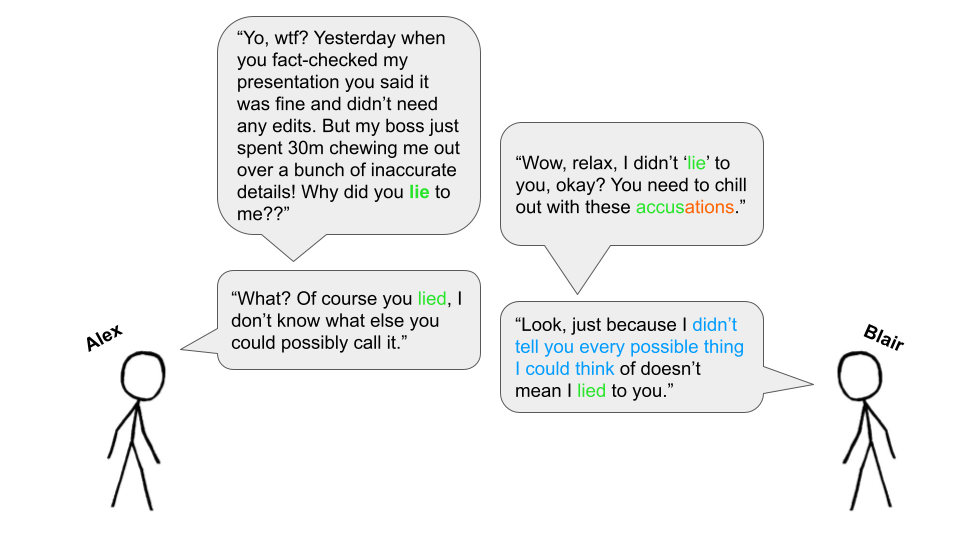
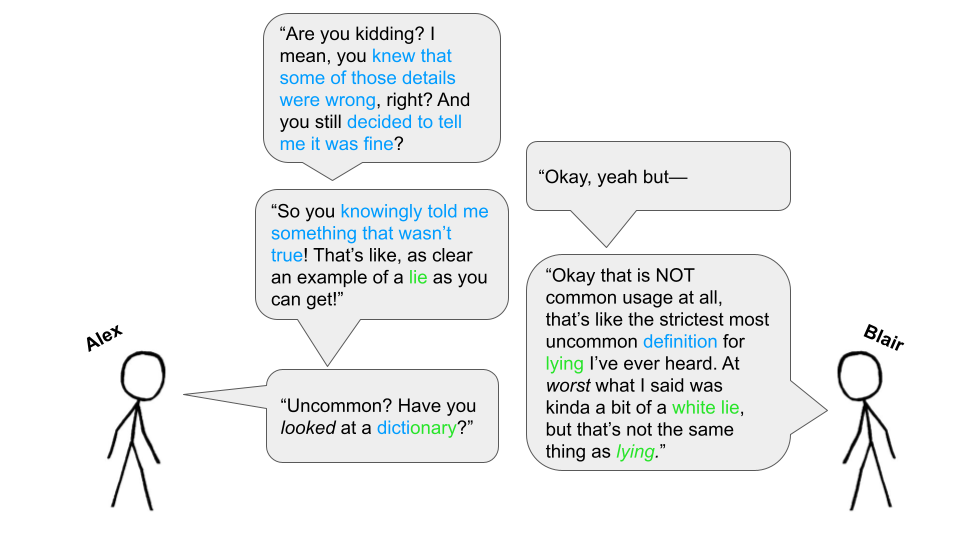
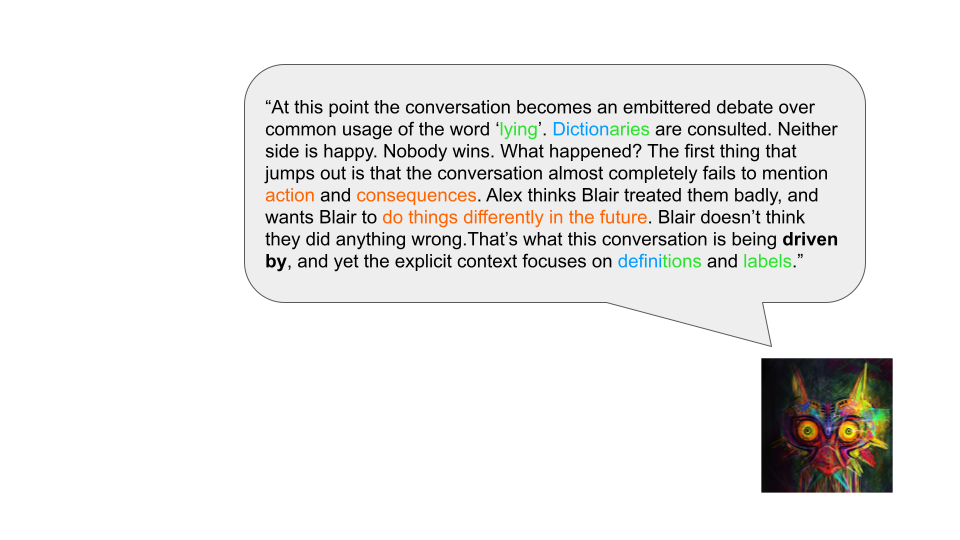
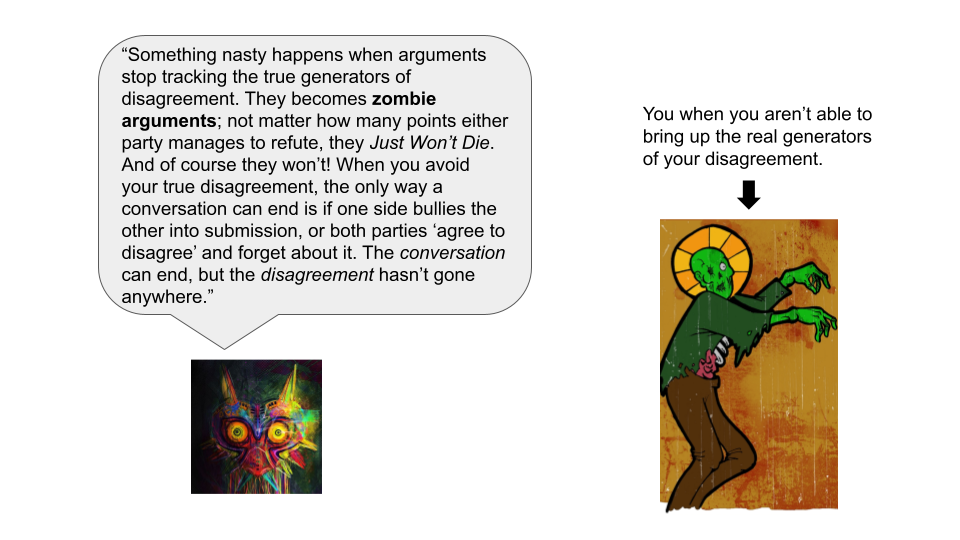
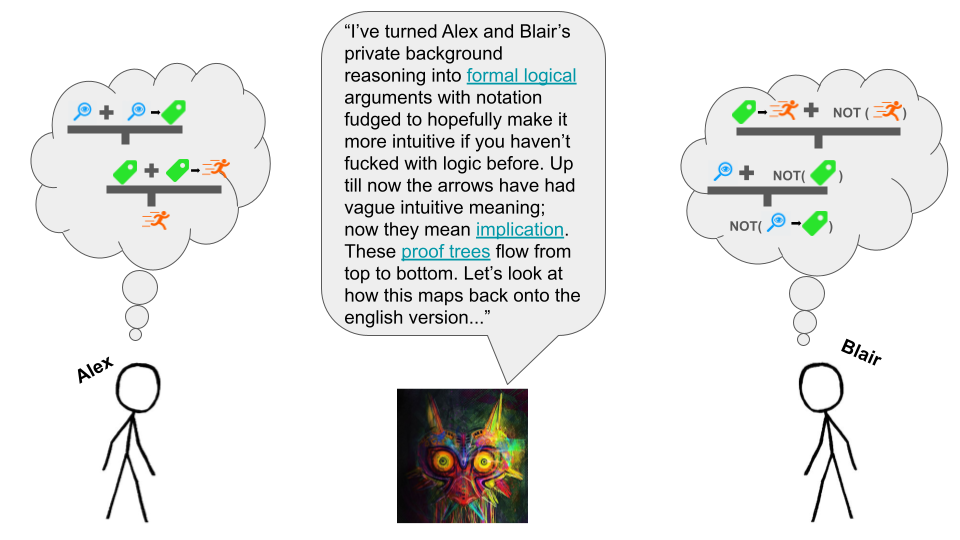
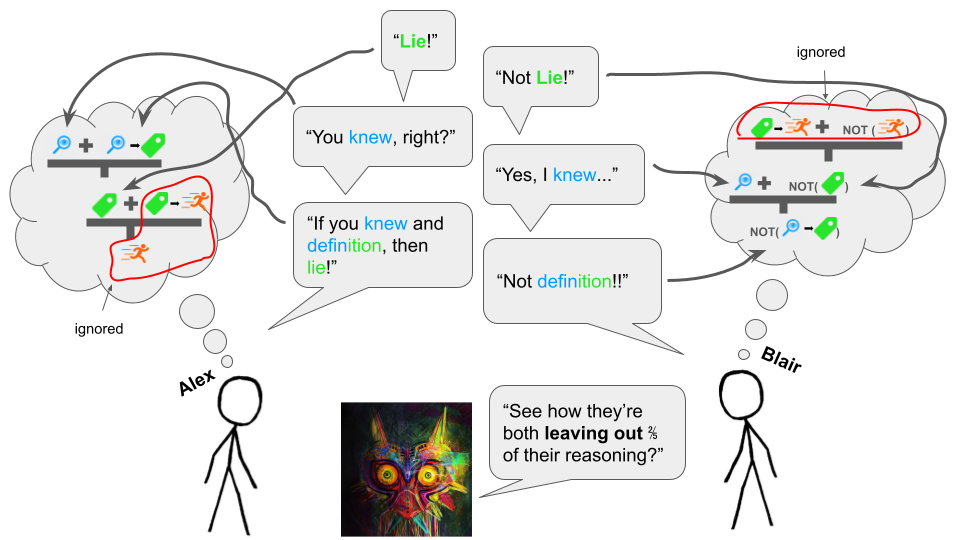
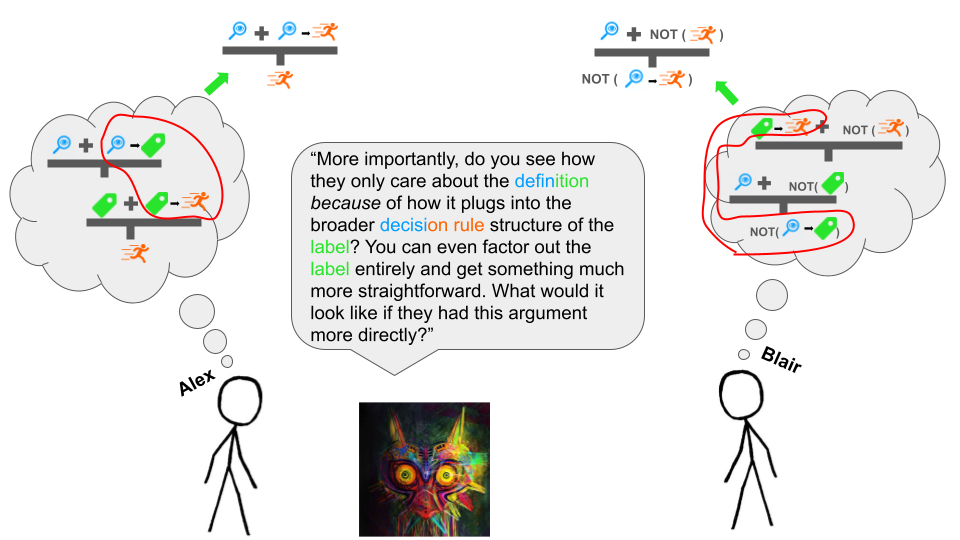
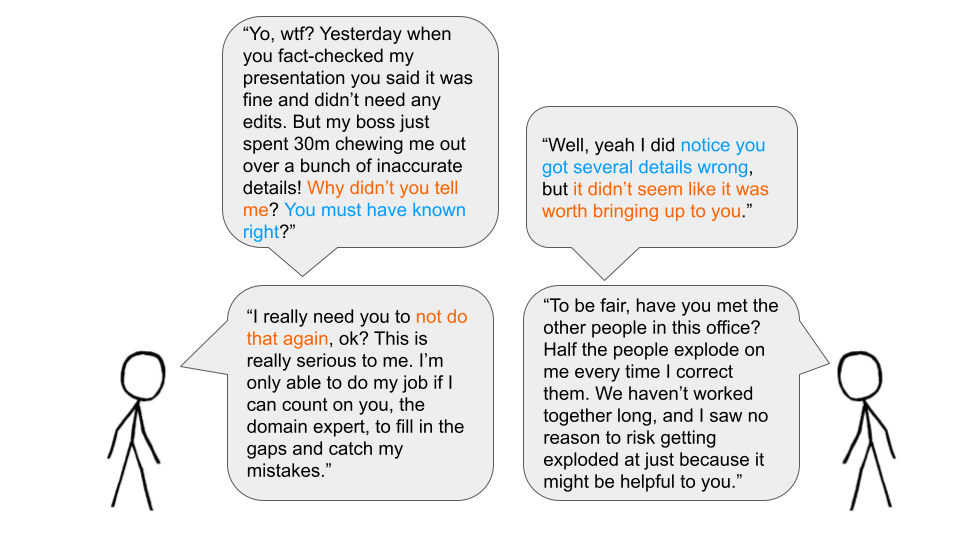
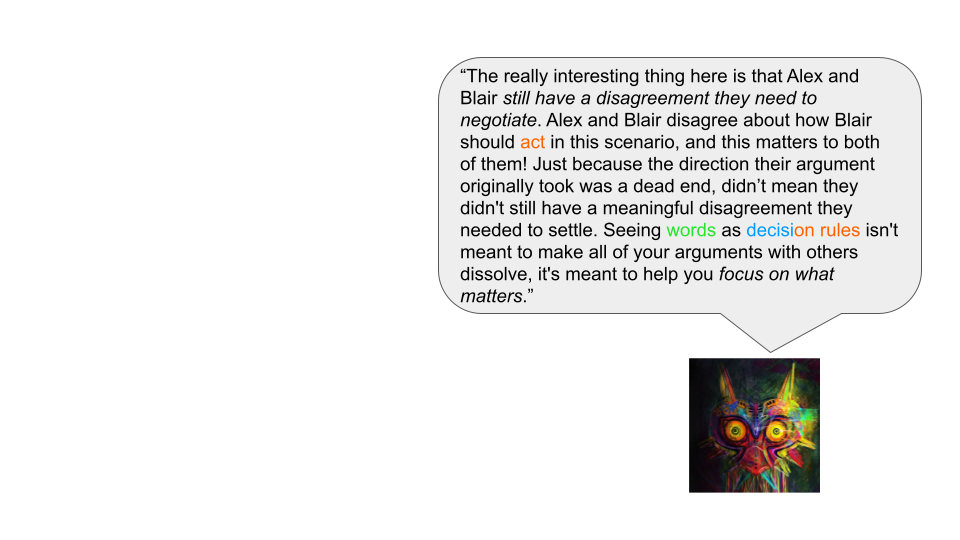
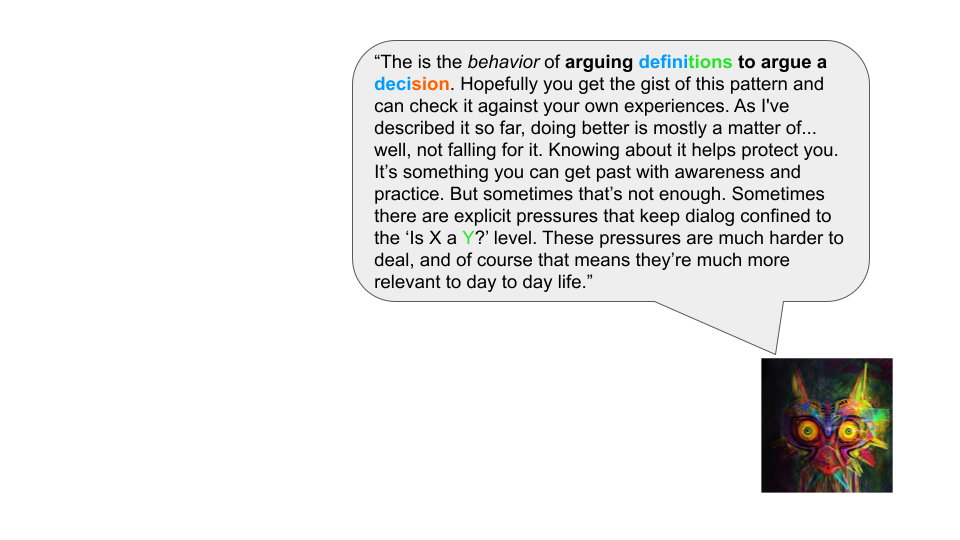
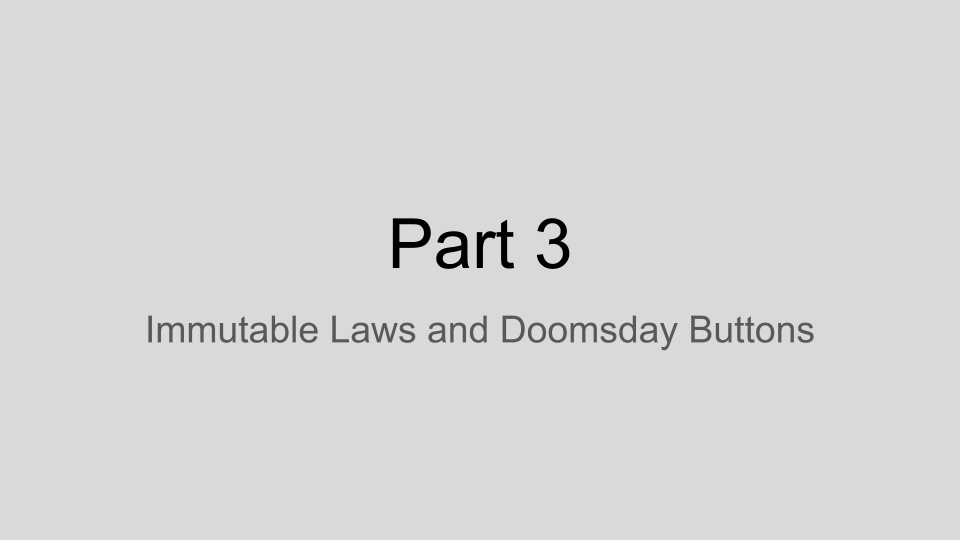
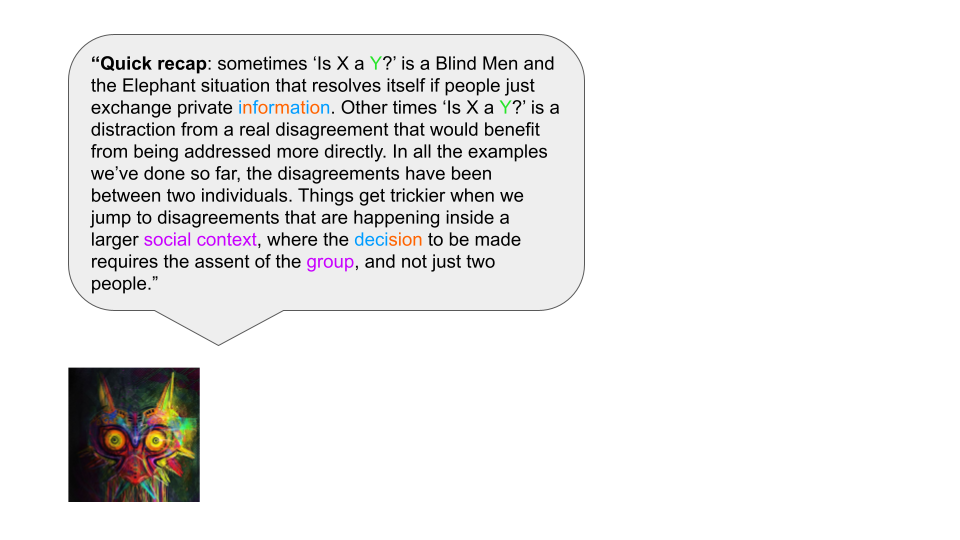
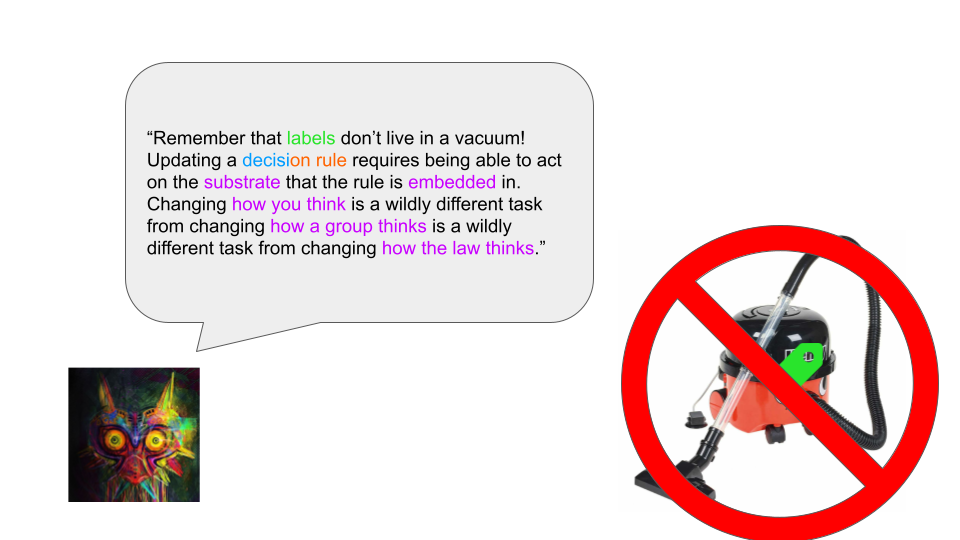
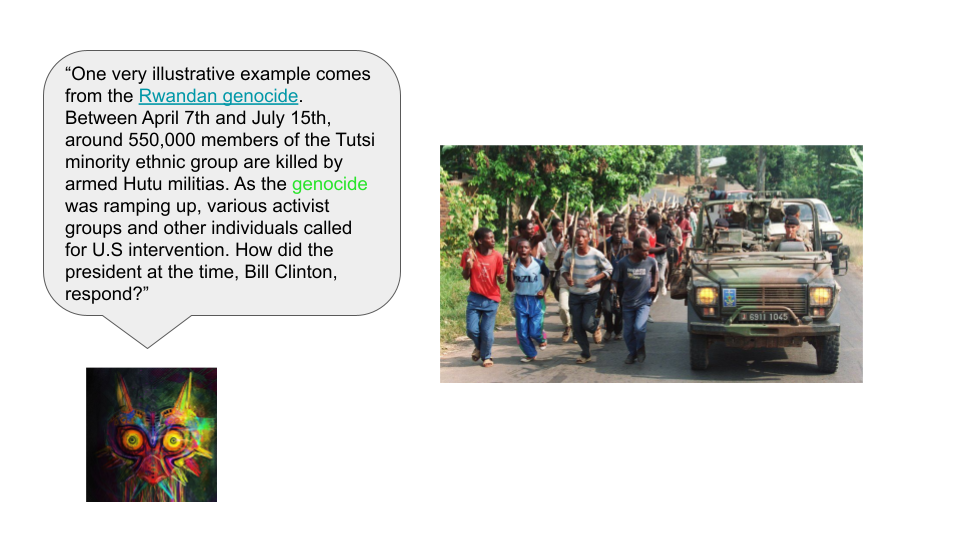
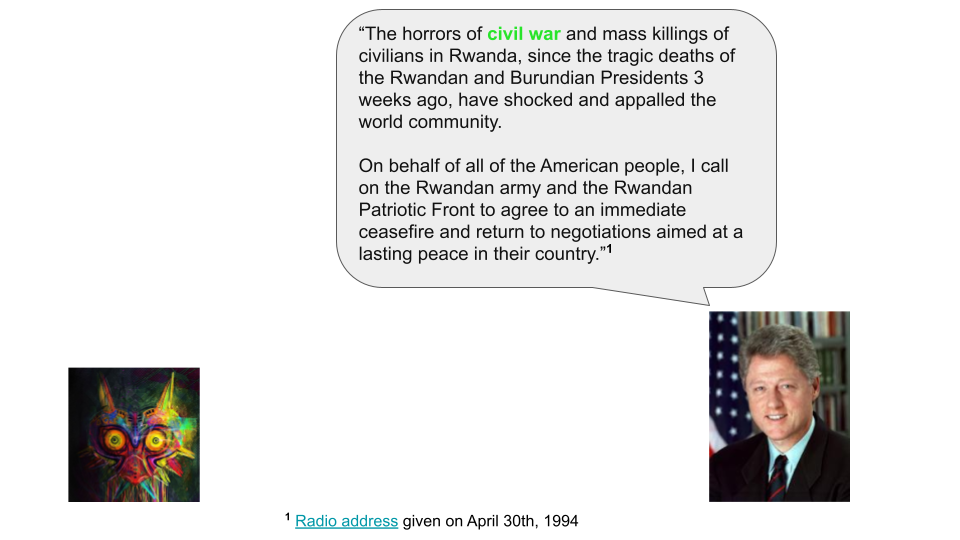
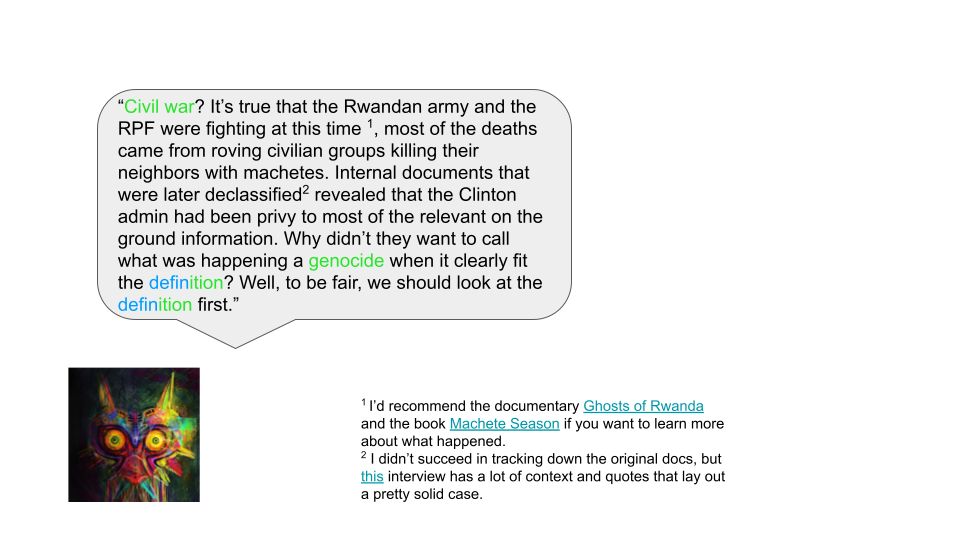
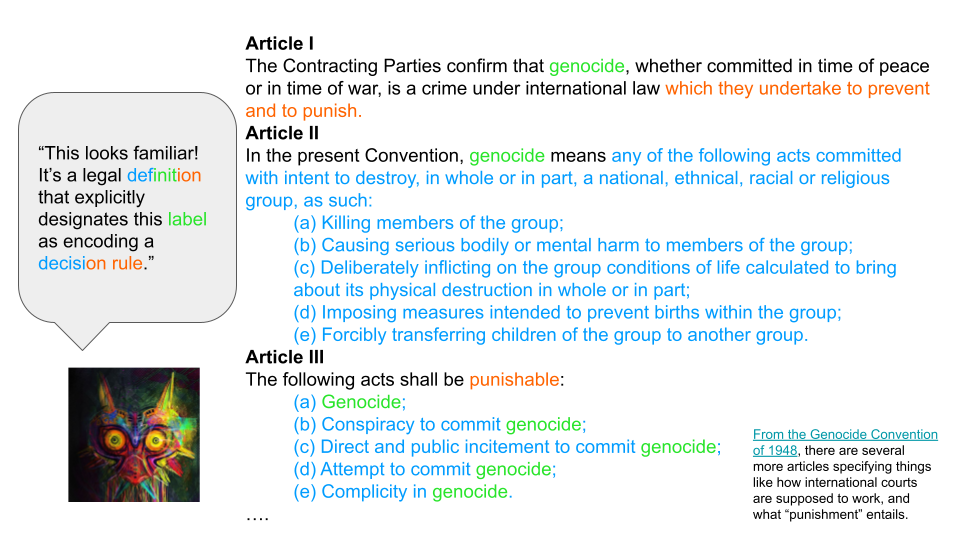
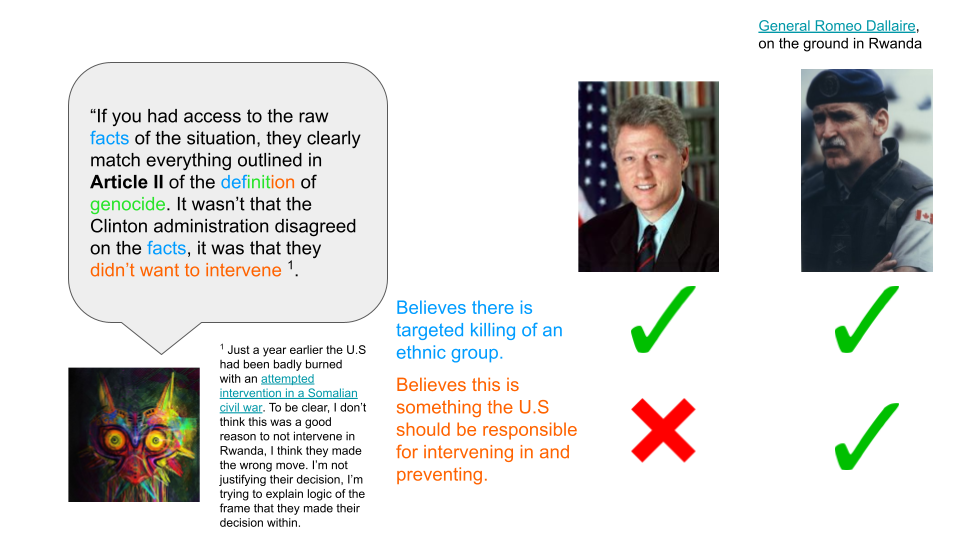
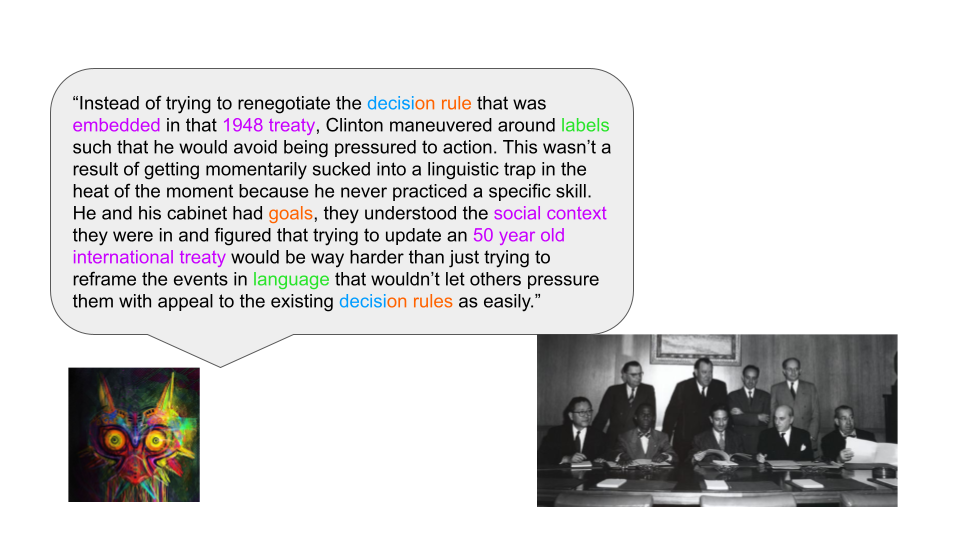
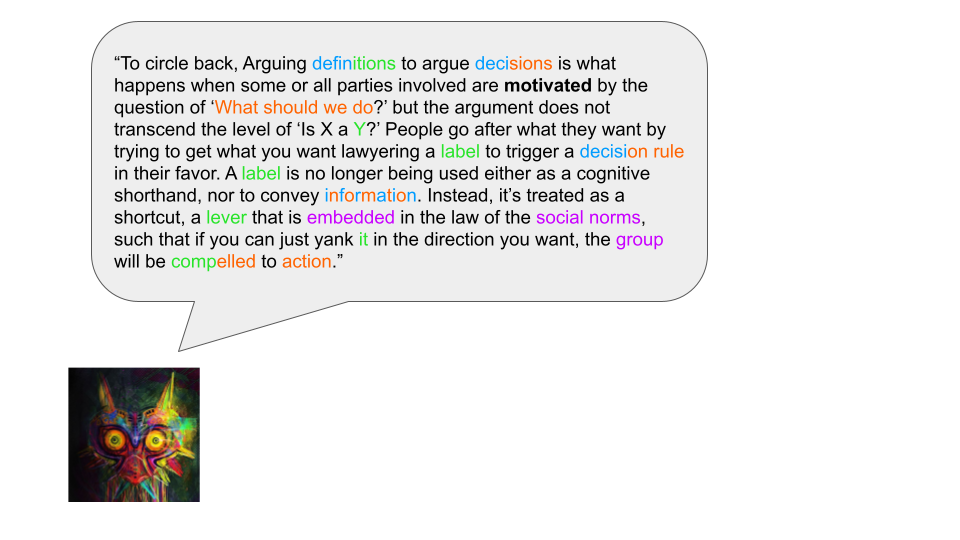
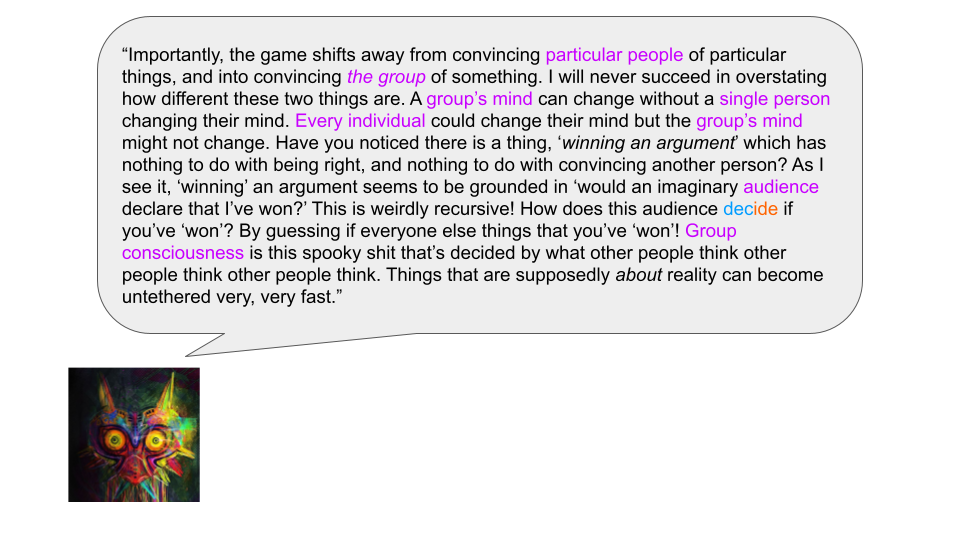
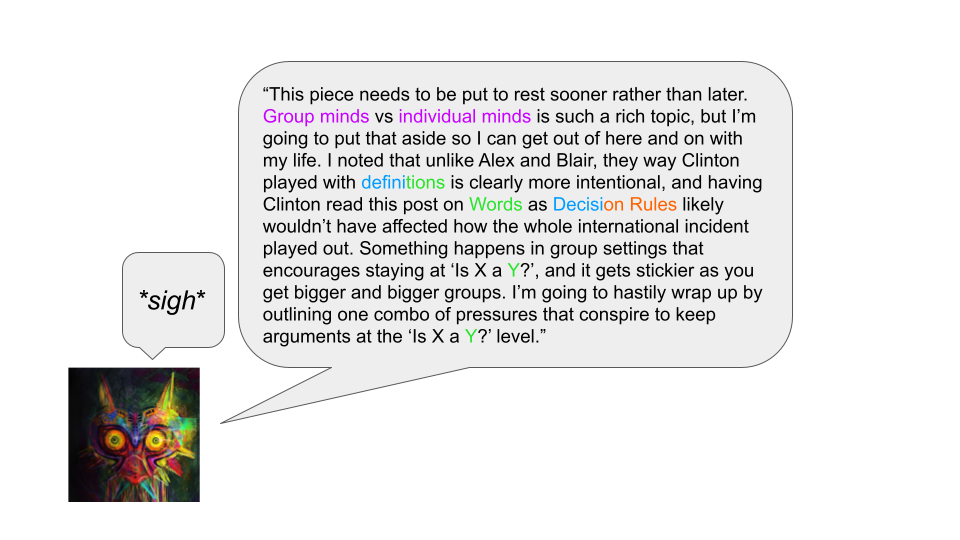
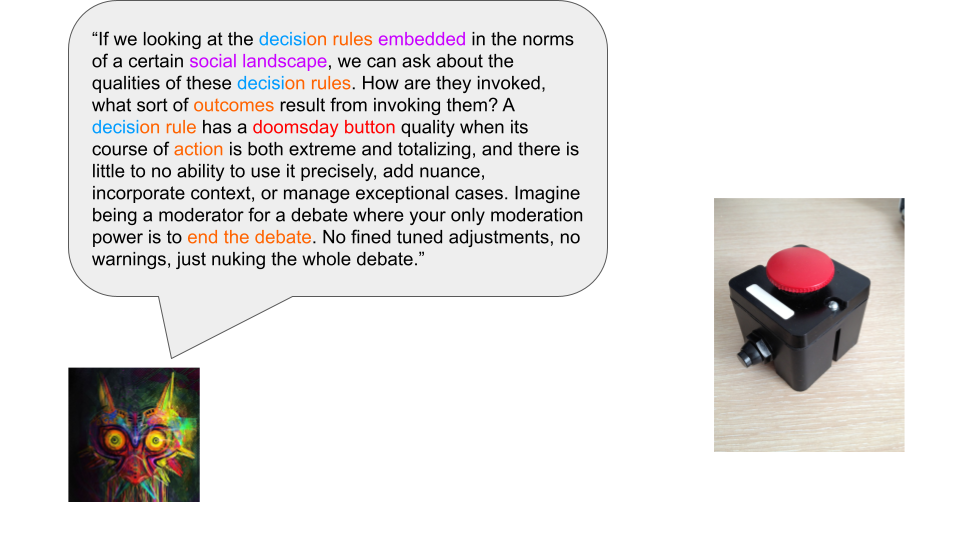
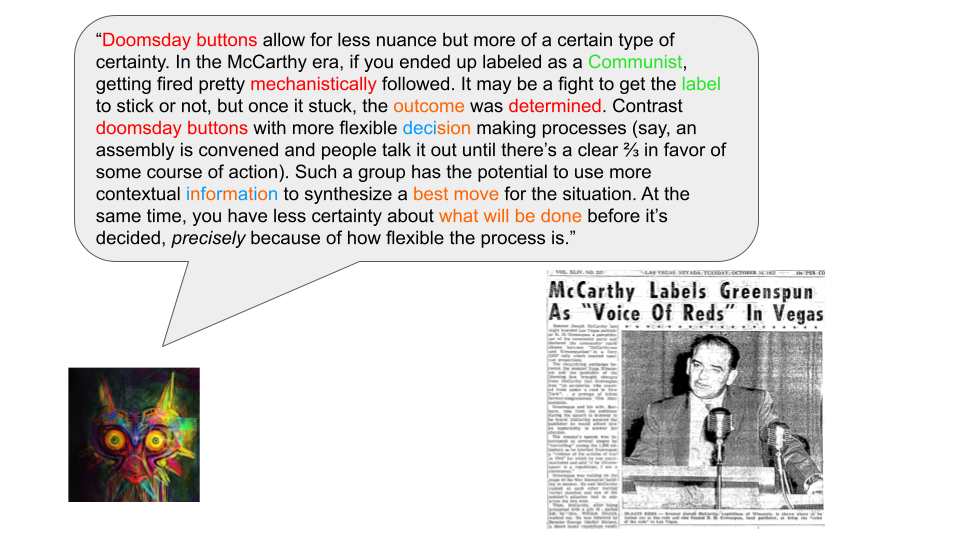
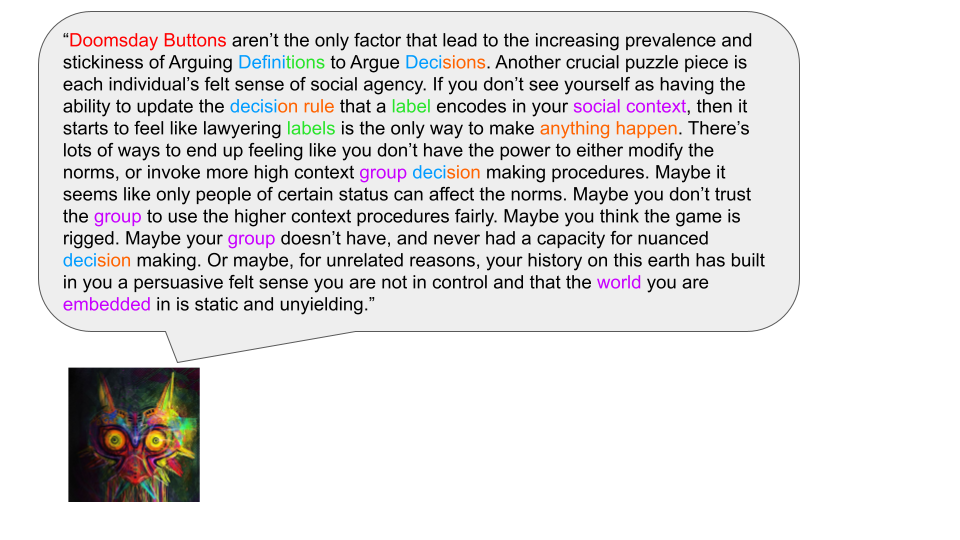
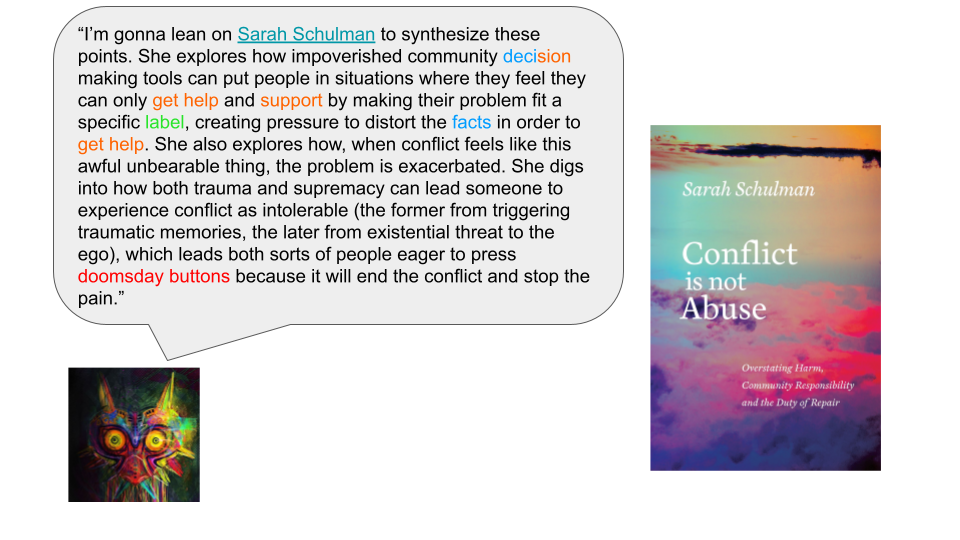
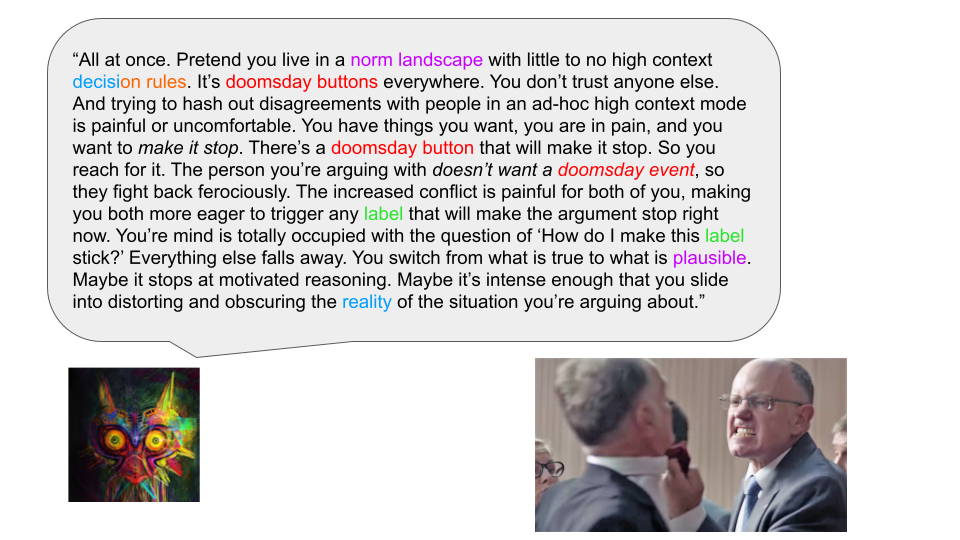

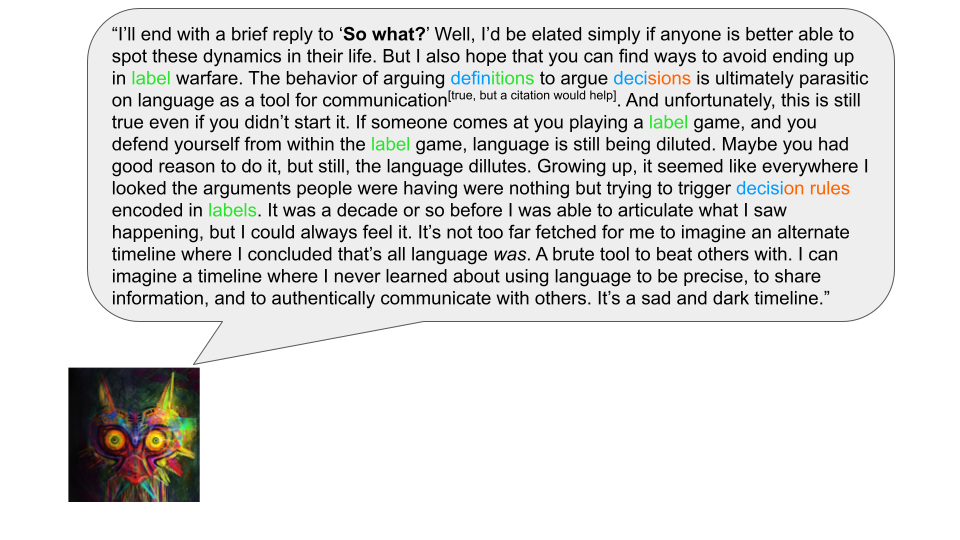
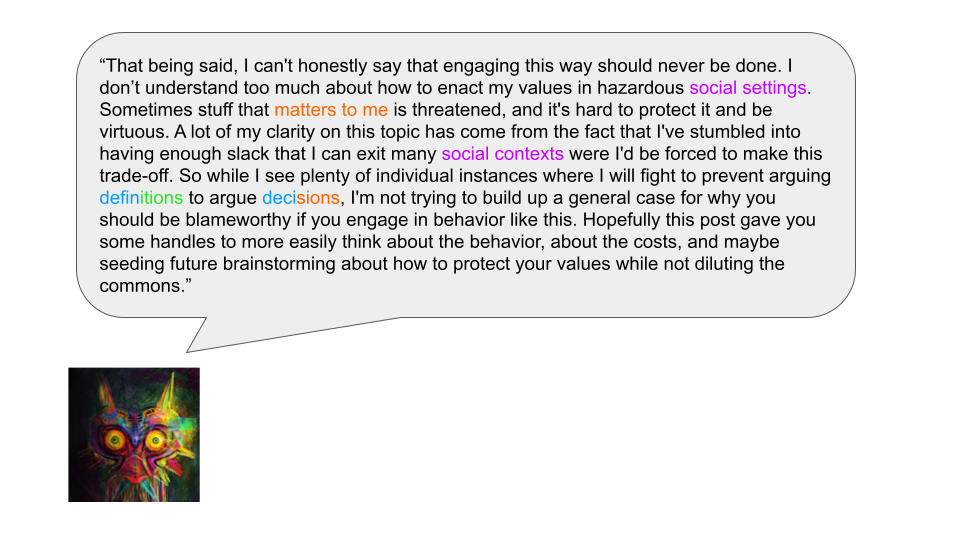
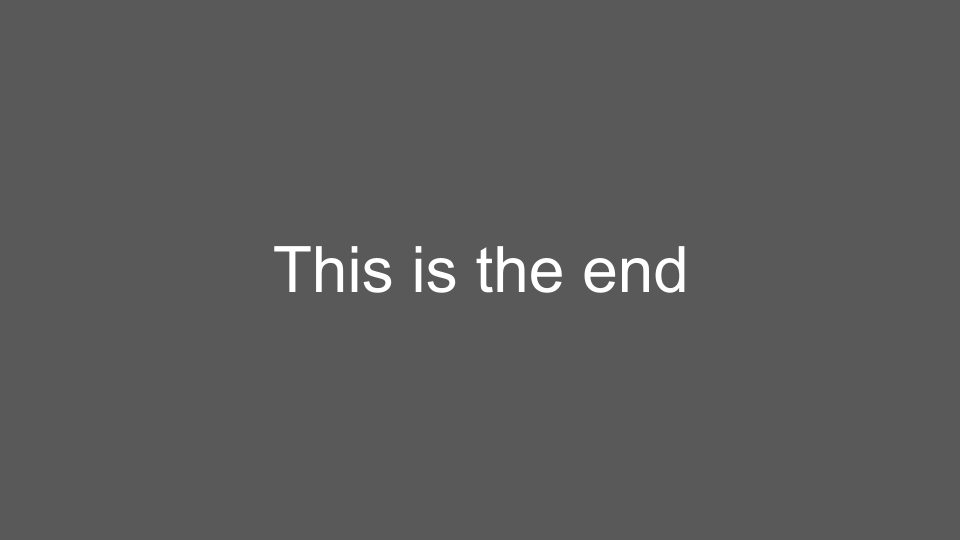
- "Love that energy Jaynes!"
- Necessary and Sufficient
- Family Resemblance
- Words as Hidden Inferences
- How an Algorithm Feels from the Inside
- A Human's Guide to Words
- View from nowhere
- "Al Capone has a point"
- Reality tunnels
- Blind Men and the elephant
- Formal Logic
- Implication
- Proof trees
- Rwandan Genocide
- Radio address given on April 30th, 1994
- Ghosts of Rwanda
- Machete Season
- "I didn’t succeed in tracking down the original docs, but this interview has a lot of context and quotes that lay out a pretty solid case."
- "From the Genocide Convention of 1948, there are several more articles specifying things like how international courts are supposed to work, and what “punishment” entails."
- General Romeo Dallaire, on the ground in Rwanda.
- "Just a year earlier the U.S had been badly burned with an attempted intervention in a Somalian civil war."
- Conflict Is Not Abuse
I have a serious problem with this sort of advice. Advice should be tailored to where people already are, and I think most people already reject trying define words much too readily. Thus this advice helps very few people, except those looking to sit back and not listen. Labels are actually important, and we need them to think any kind of complex thoughts. The correct labels make it easier. The wrong labels make it much harder. Rejecting the entire process because it can go wrong is much less useful than pointing out when it does and doesn't help to do it.
When you read what someone writes on a forum, you always have to think if it is worth your time? Is there a good point? Good is a label. Are they a troll? Troll is a label. You should be able to inform your friends that someone is good, or a troll, or even a good troll. Also, sometimes a person is just a liar, and informing people about that is useful, even if the person being informed is just you.
Trying to figure out exactly which parts are the core of the disagreement is useful, but discarding the entire concept because subsets of the concept are useful too is not a good idea. (Also, it is obvious in the dialogue who is right in the dispute. It is useful to everyone to know 'Blair' is likely to lie about how you did on the project, and is thus useless to ask. Convincing Blair not to lie could be useful, but is likely not worth the effort requited, and simply noting his untrustworthiness using 'liar' is much faster. Just because the argument itself won't be useful doesn't mean the idea of labeling things isn't.)
I find it disappointing that you start out showing that labels are useful, and then you seem to promptly forget it just because they can be disputed -which is why arguing definitions is useful (occasionally, with people doing it in good faith). Is every 'gru' a 'leck'? Suppose everyone knows facts A, C, and Z about grus, while lecks are definitely A, B, and Z. Every gru I've seen is also B. Is B true about all grus? If grus are also lecks, then definitely. Should I not then prove that grus are lecks (supposing I can)? Suppose someone can then point out the mistake in my definition. Should they not do that? Some of this might even just be deciding which examples of things similar to a gru should or should not fall under that label. All of this is arguing definitions, and obviously useful (assuming anyone cares about B in the context of grus).
I agree that meeting a person where they are is pretty important. You also seem to spend time with very different people than who I spend time with, and you have a very different reference for "people" and "where they are". This post probably isn't going to be too useful to the people you reference in your hypotheticals. It has been very useful for various people I know, so I'm meeting them where they are :)
You mention that it's useful to have conversations where you try to get on the same page about what you mean when you use certain words (3rd to last pa... (read more)